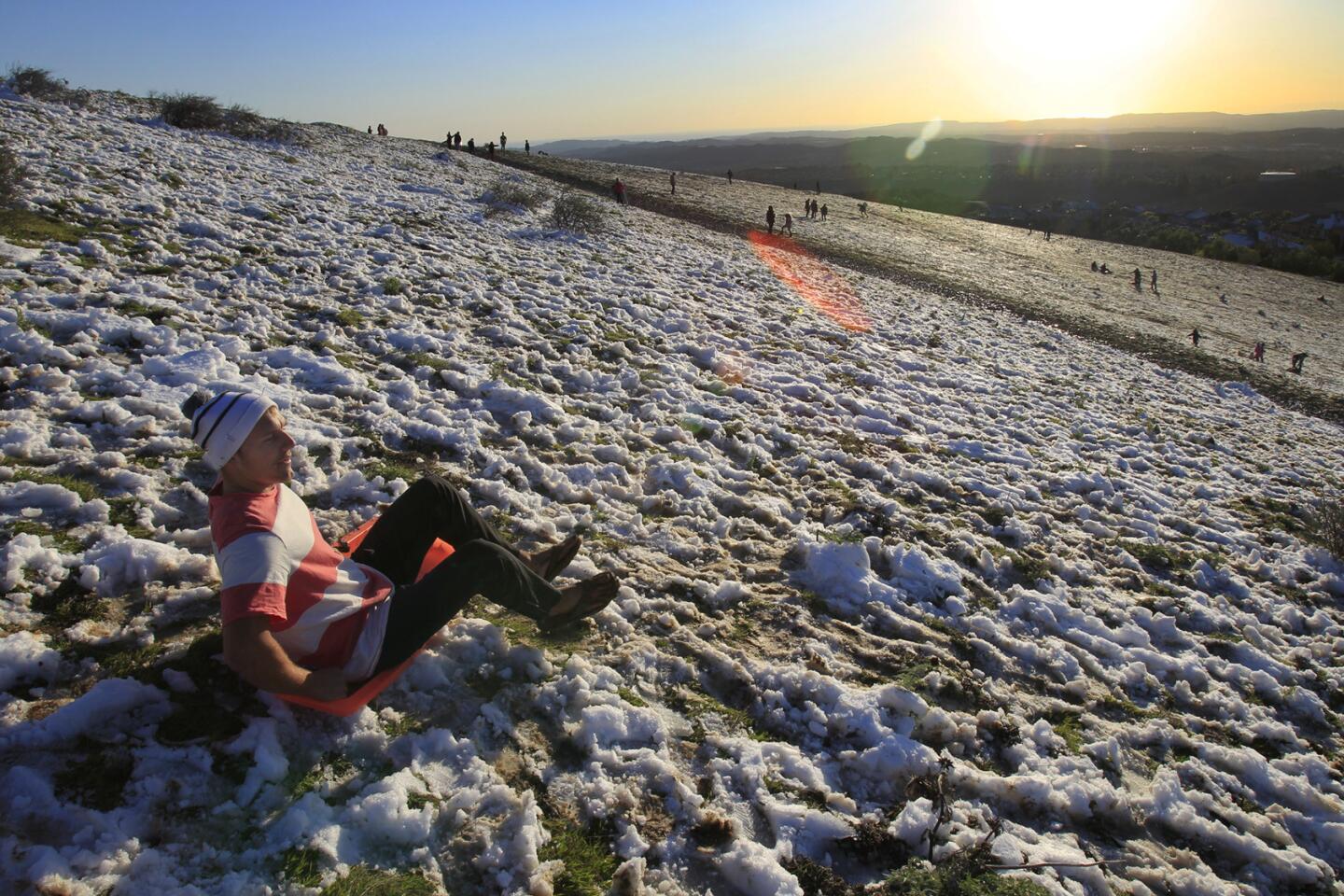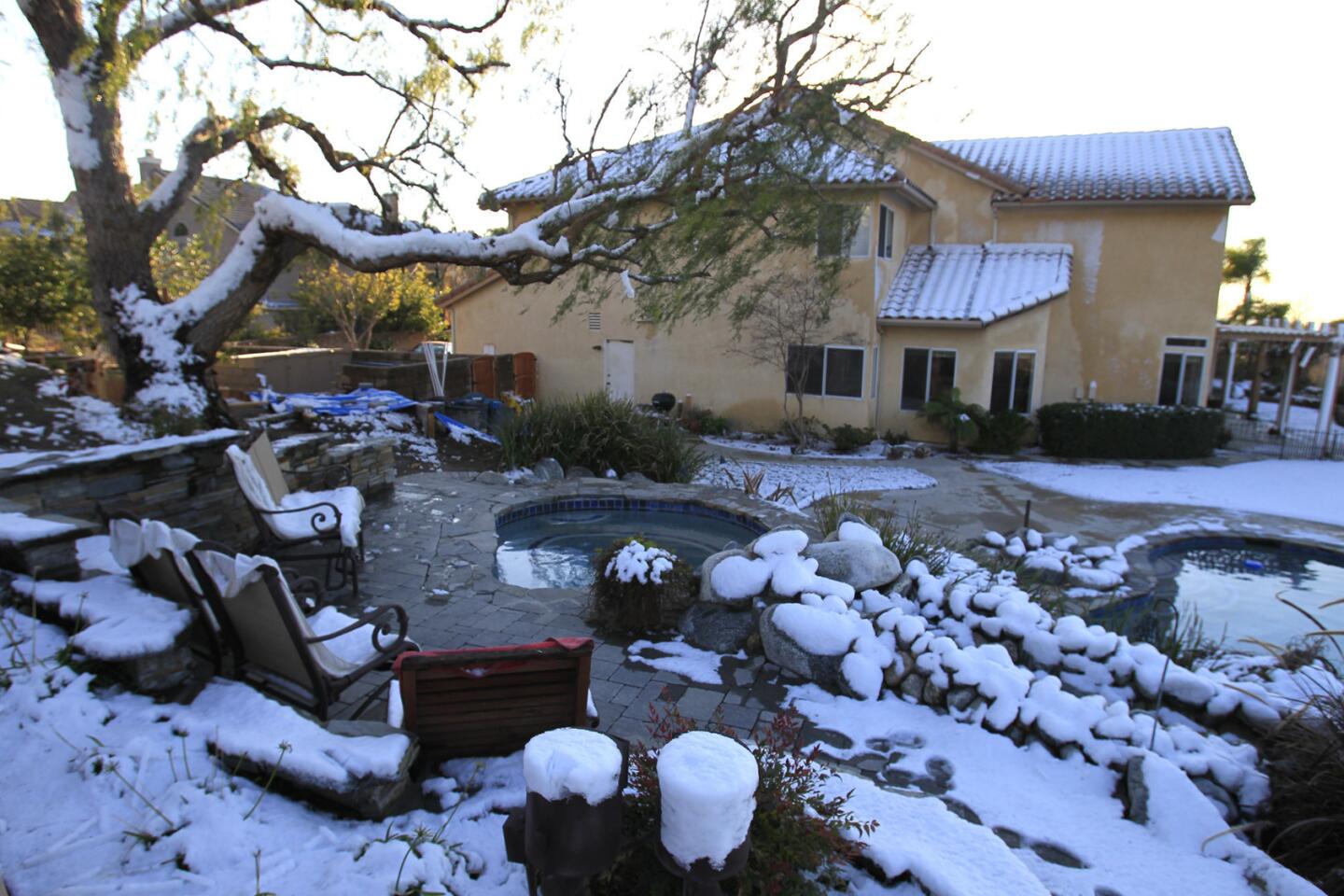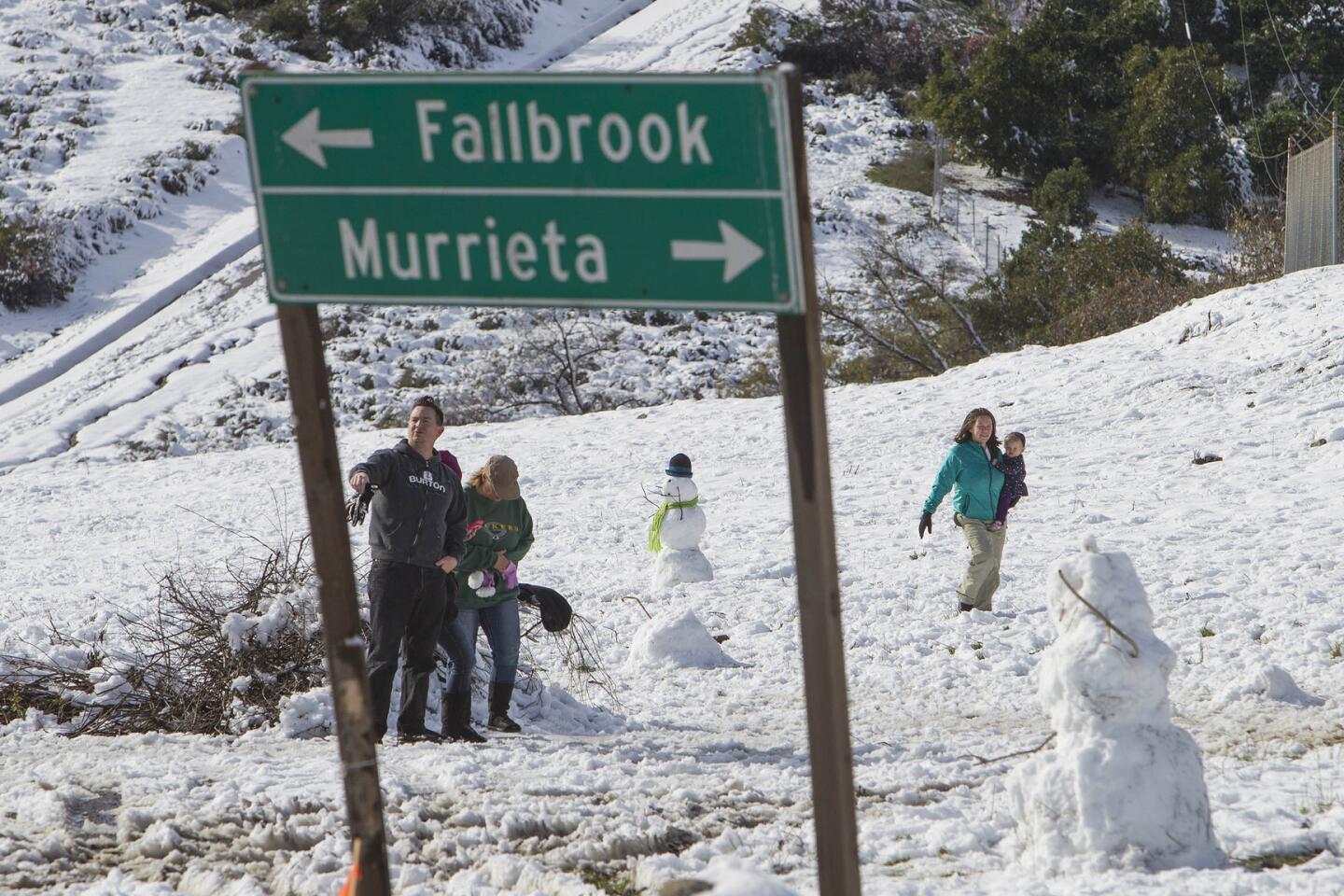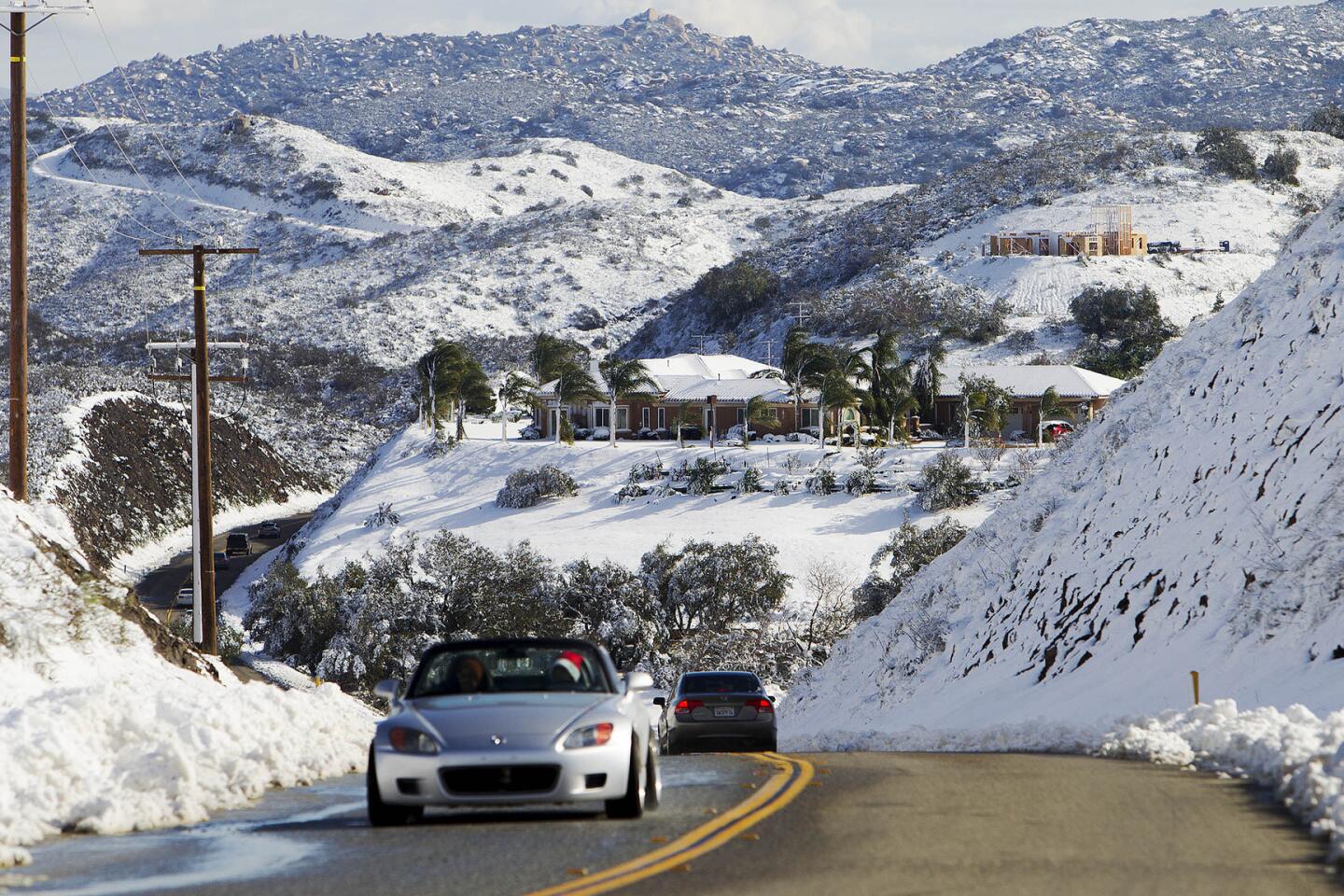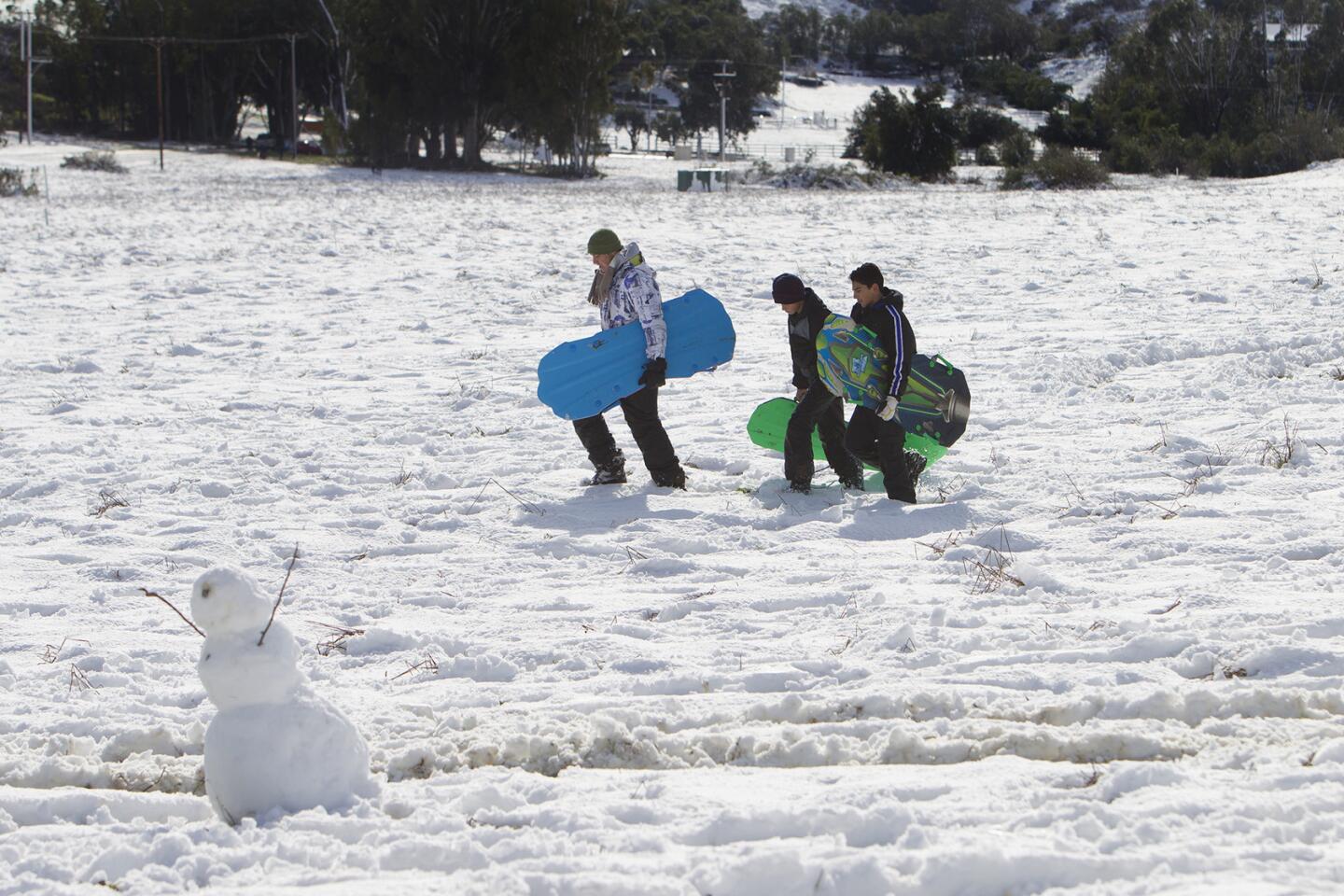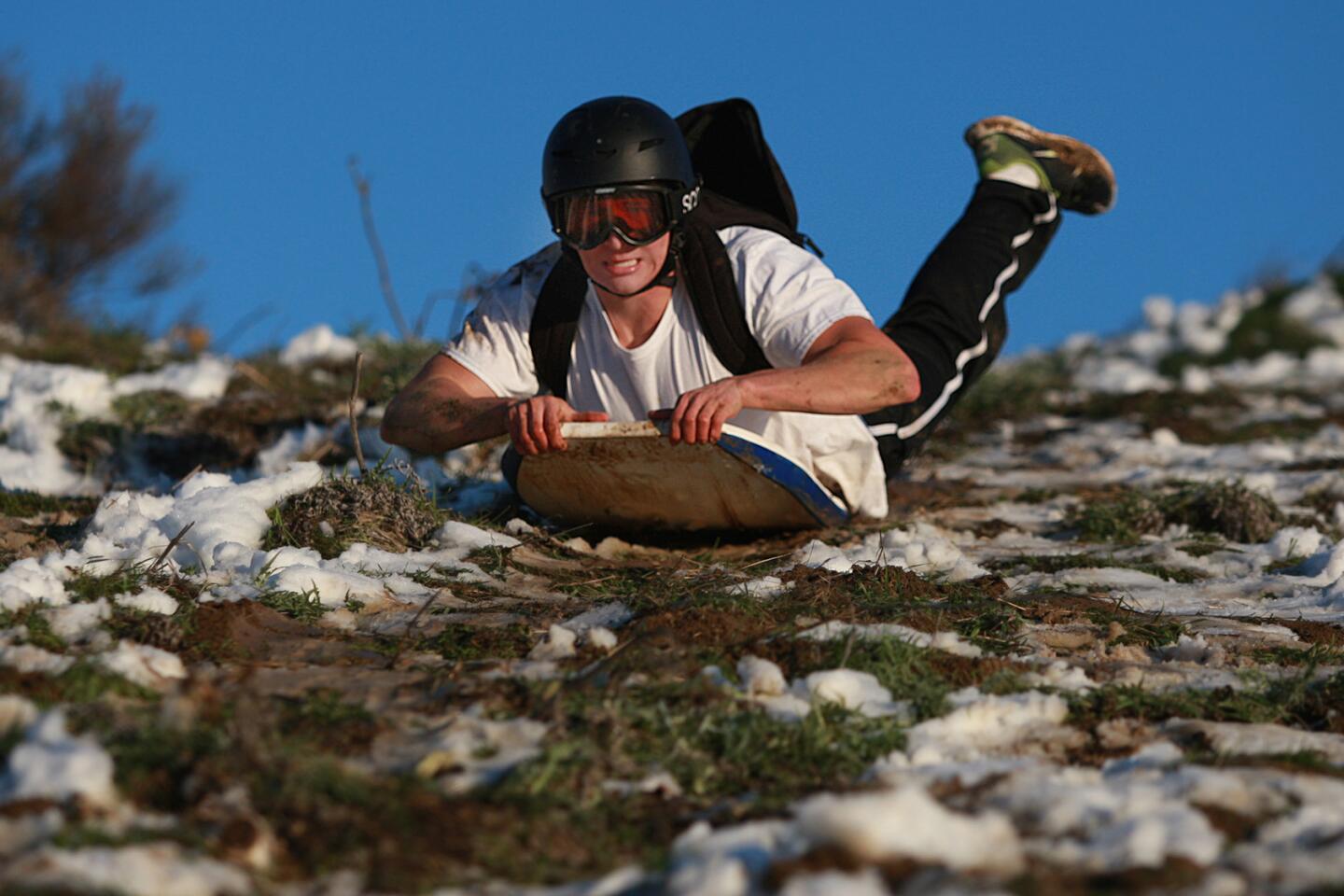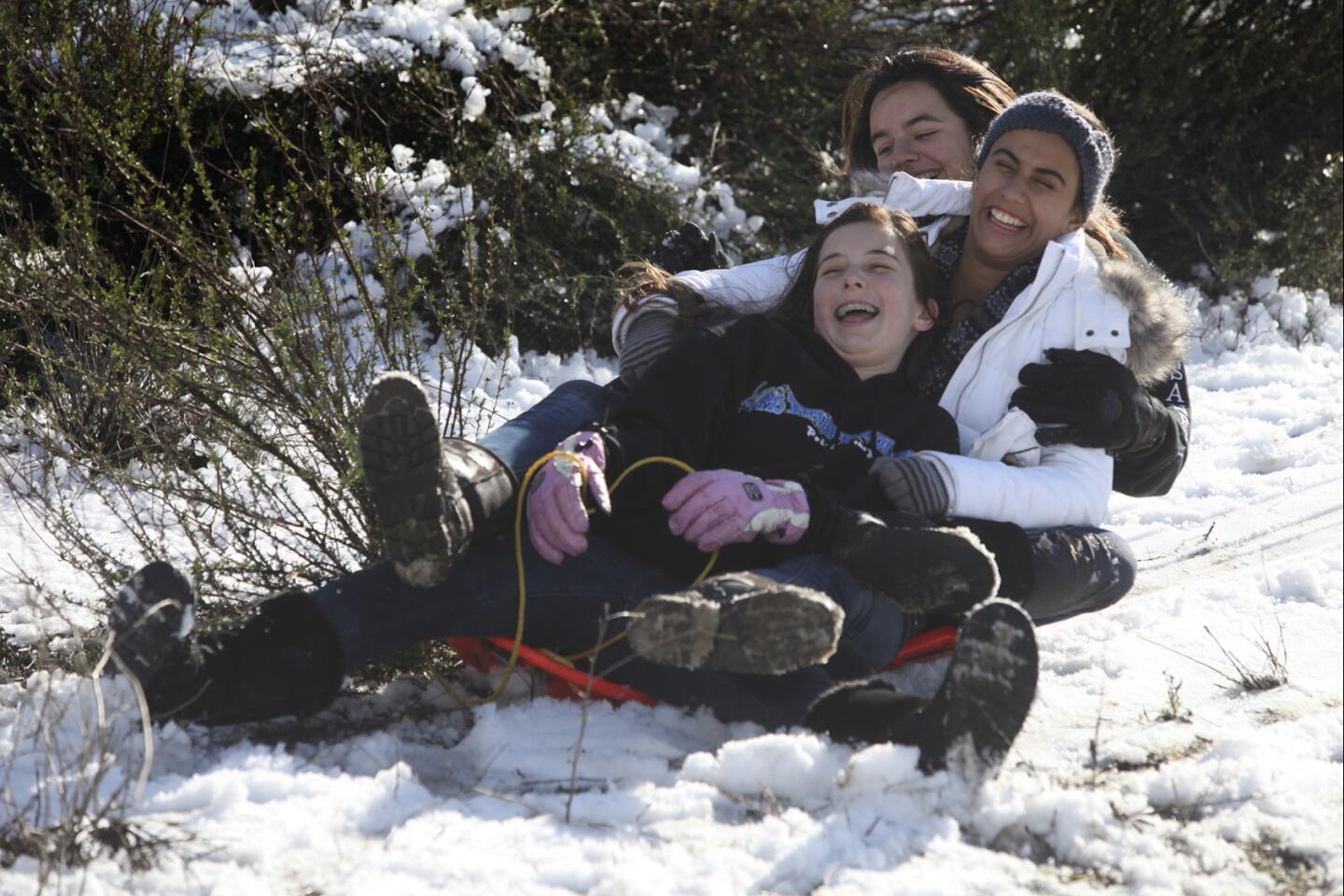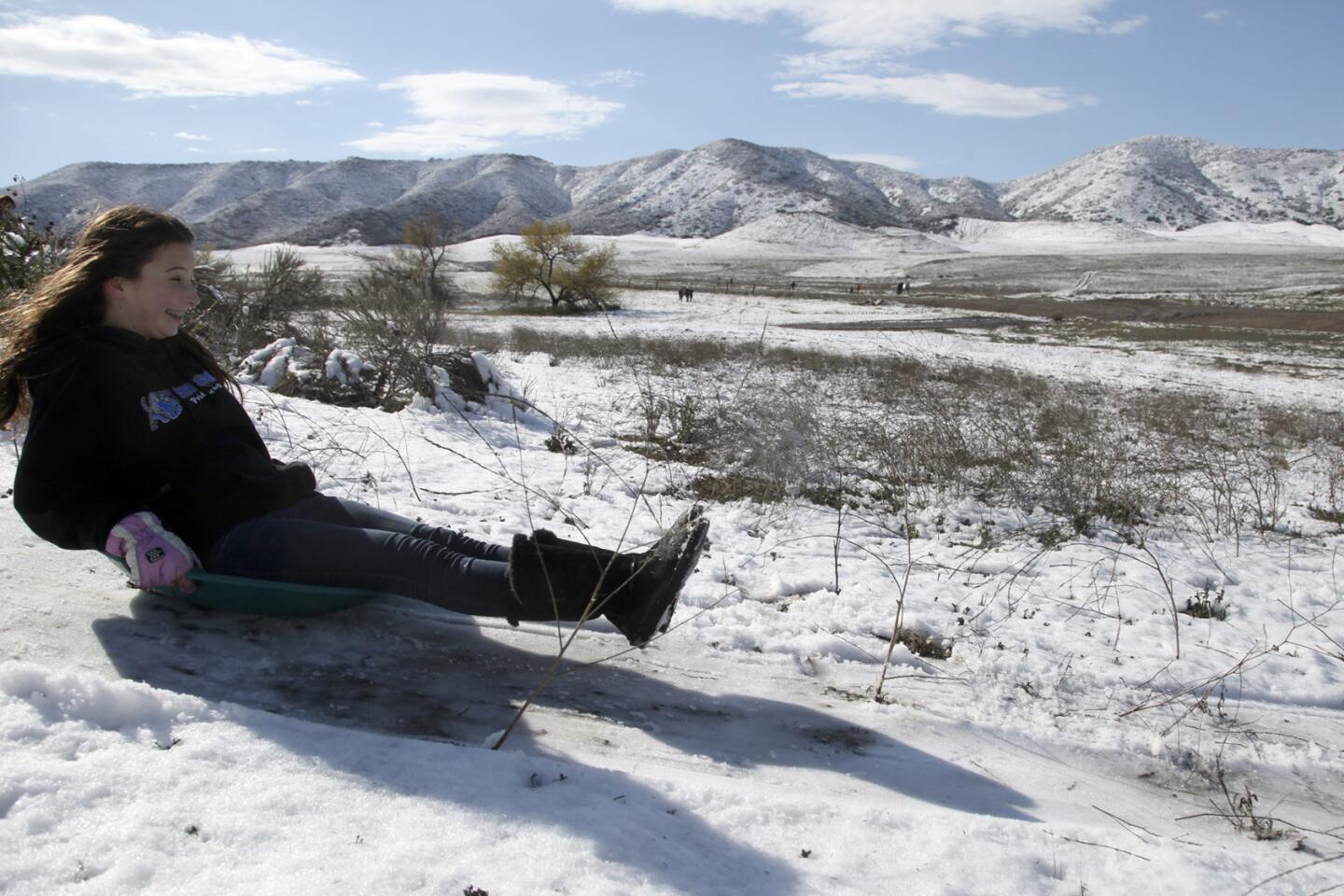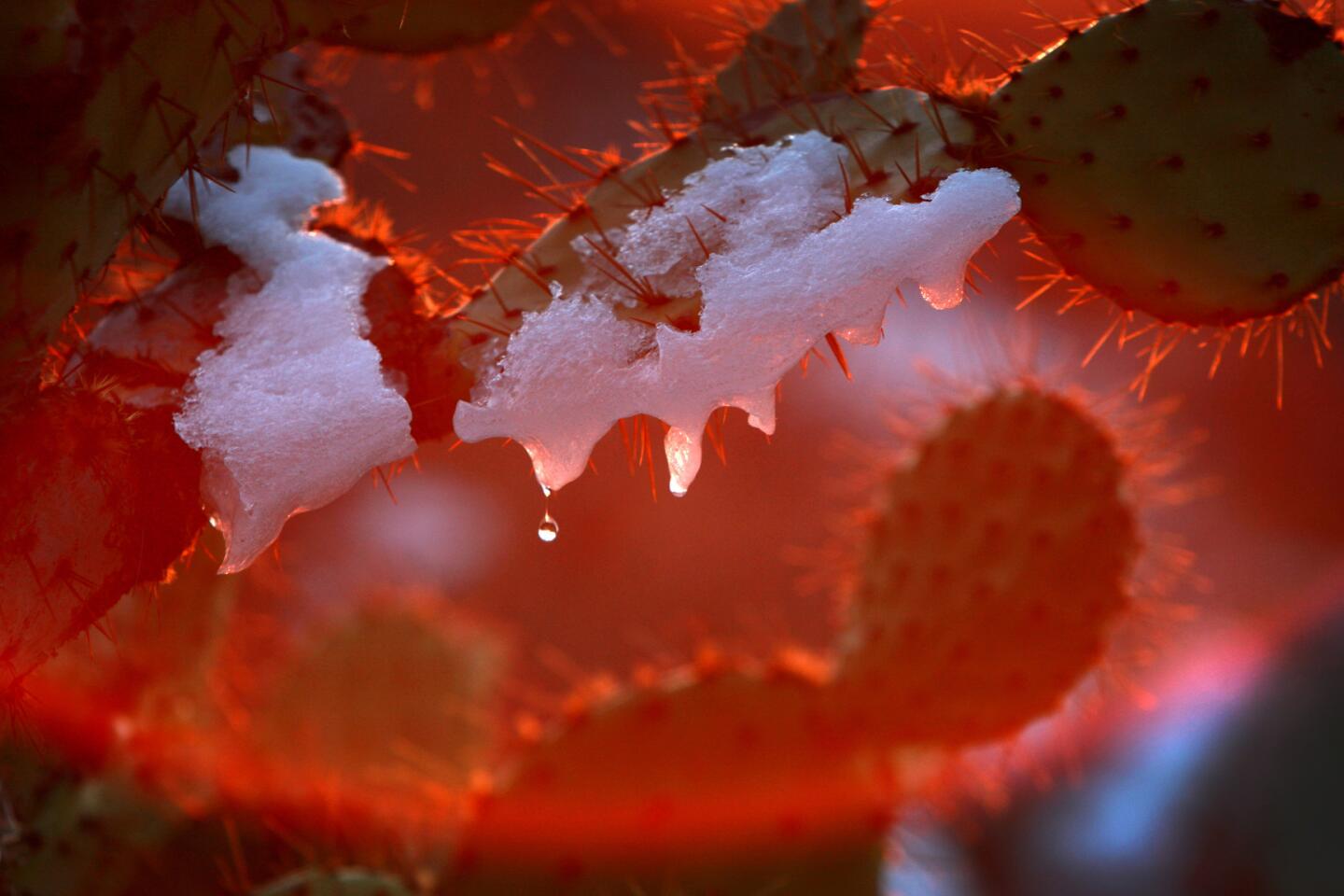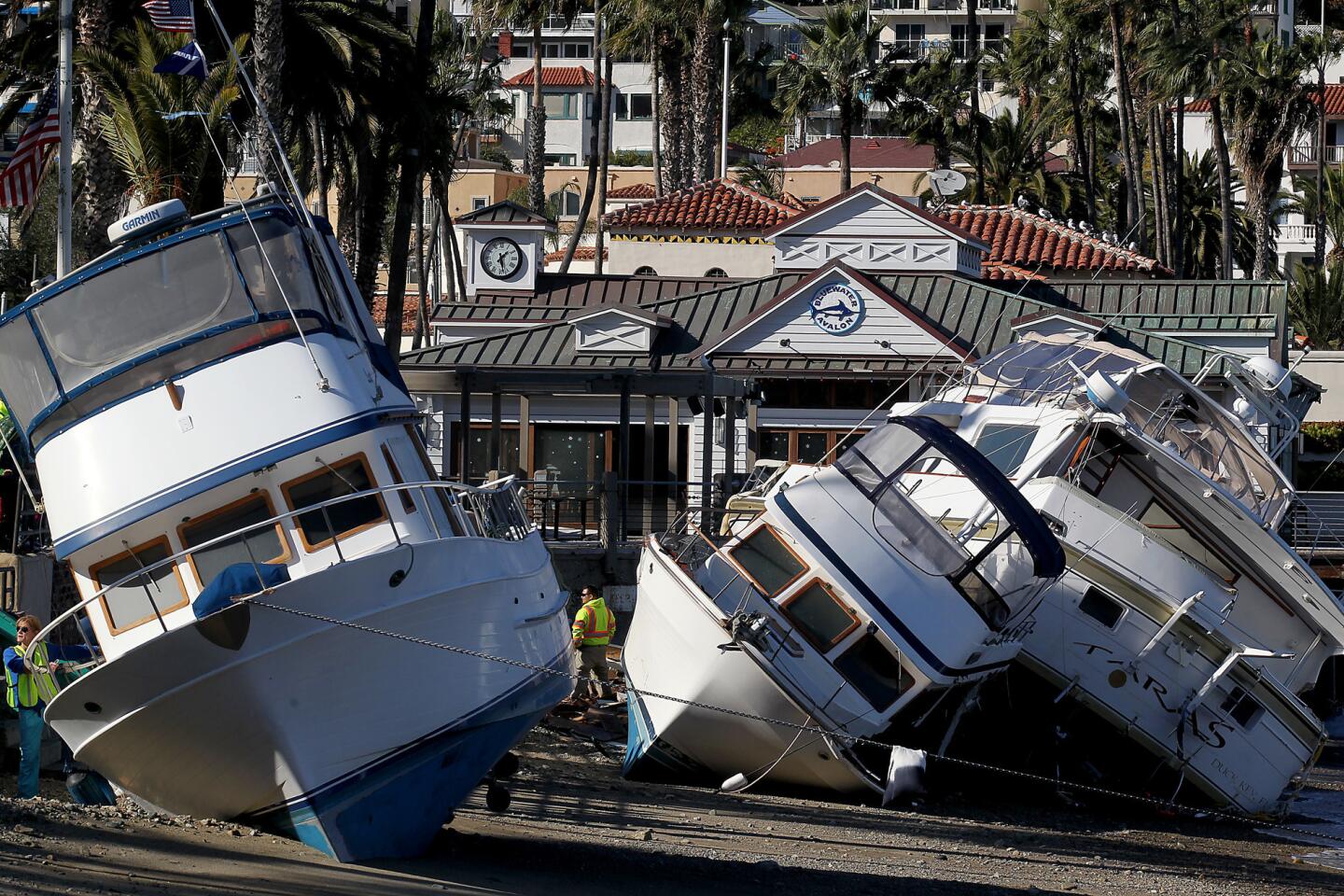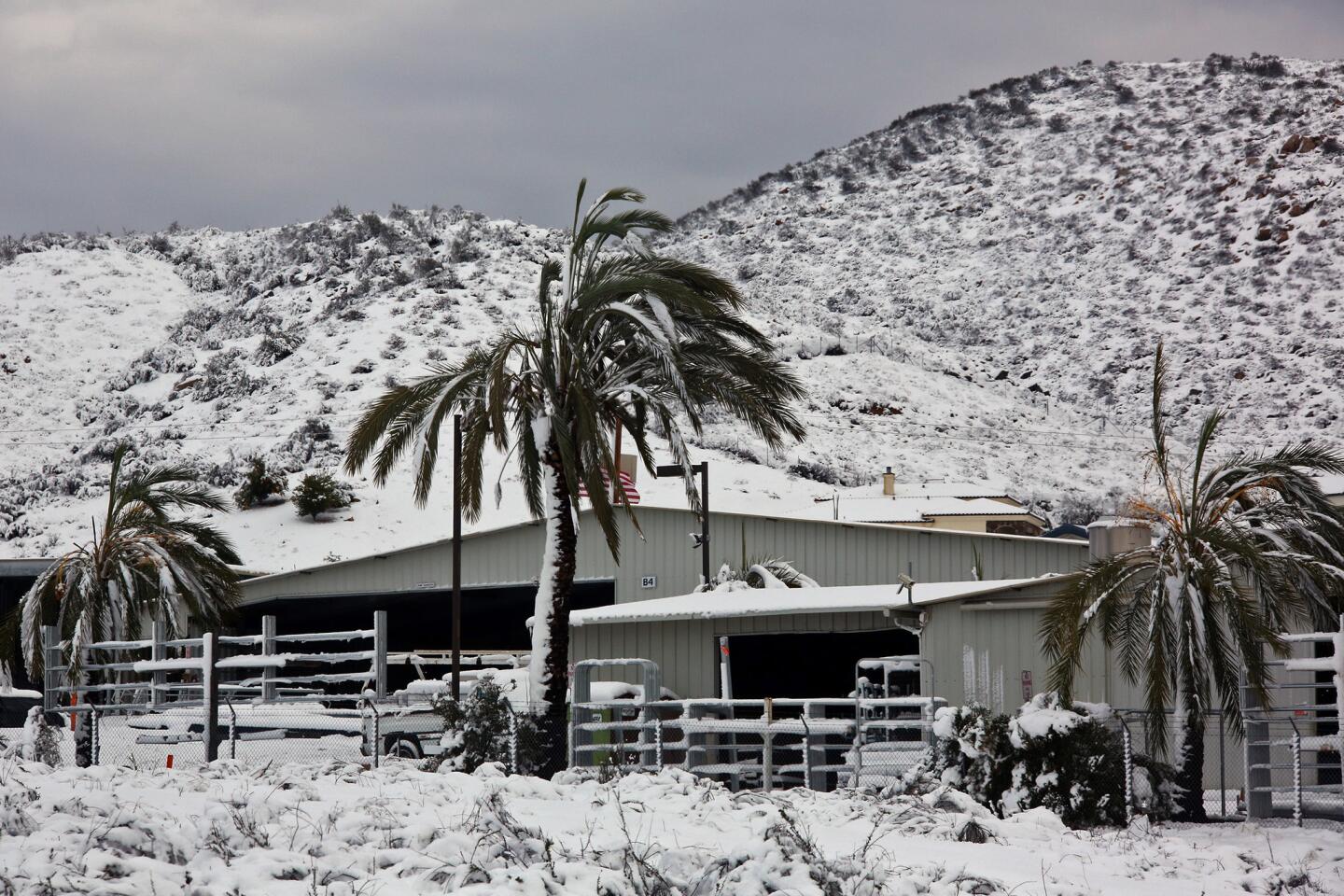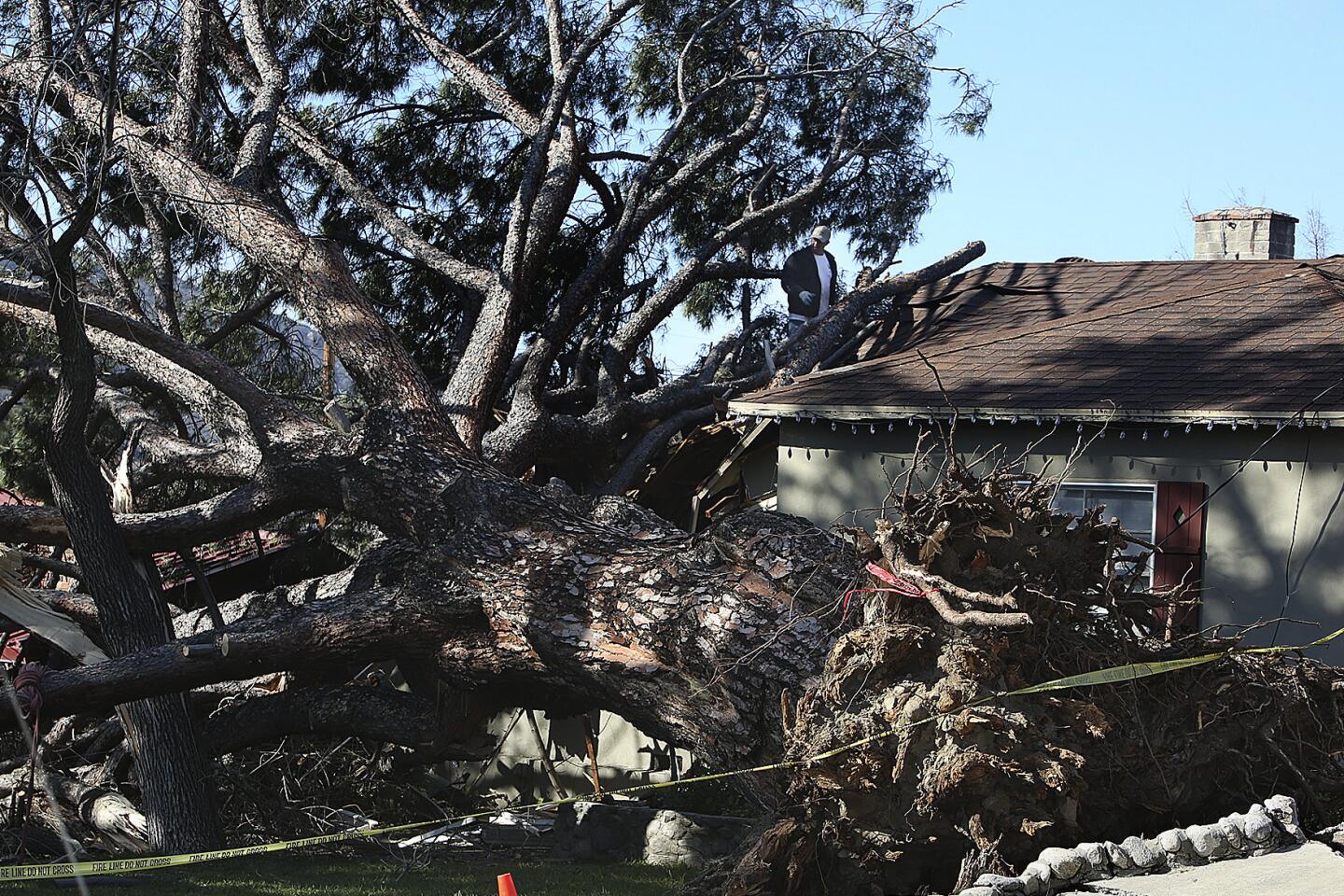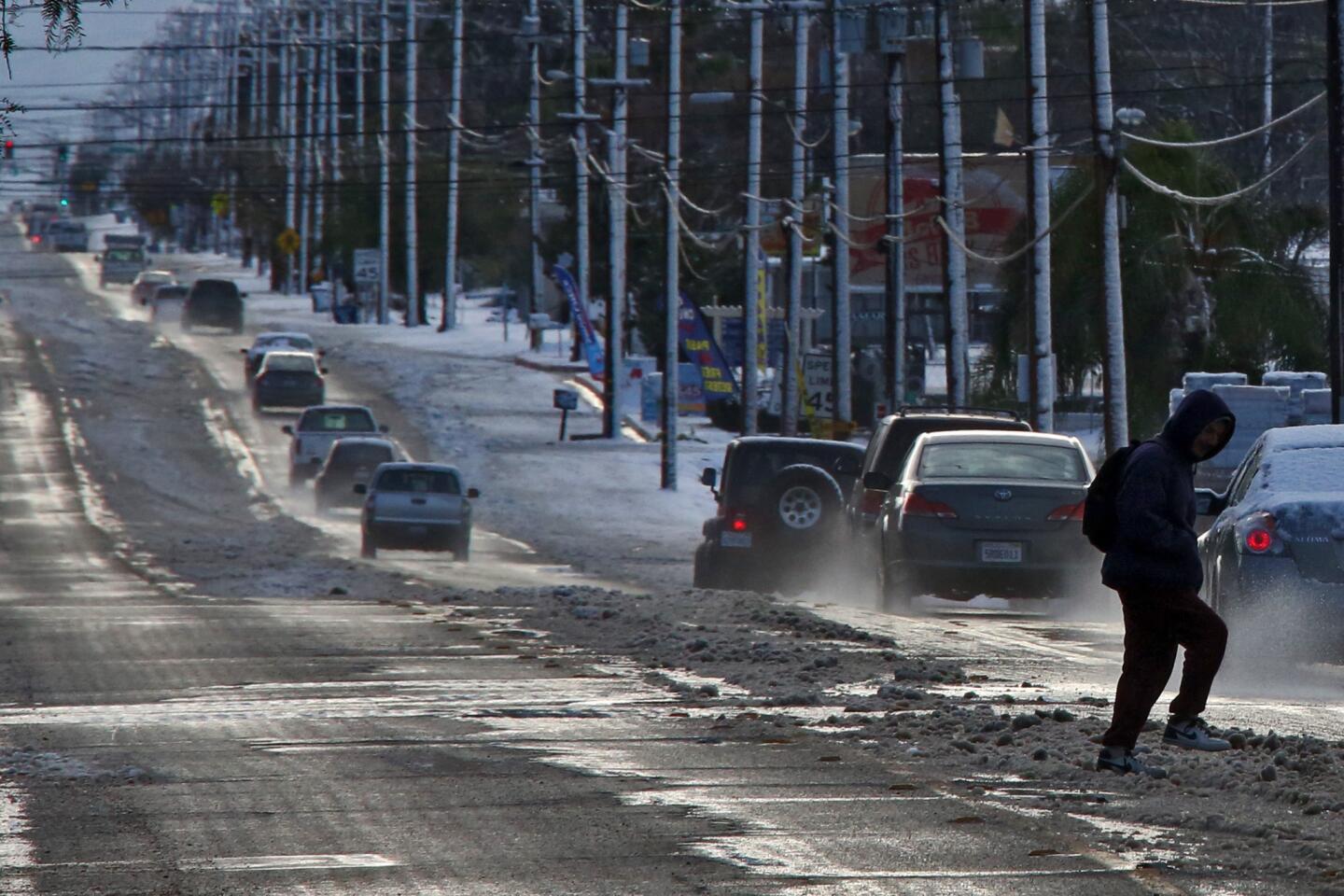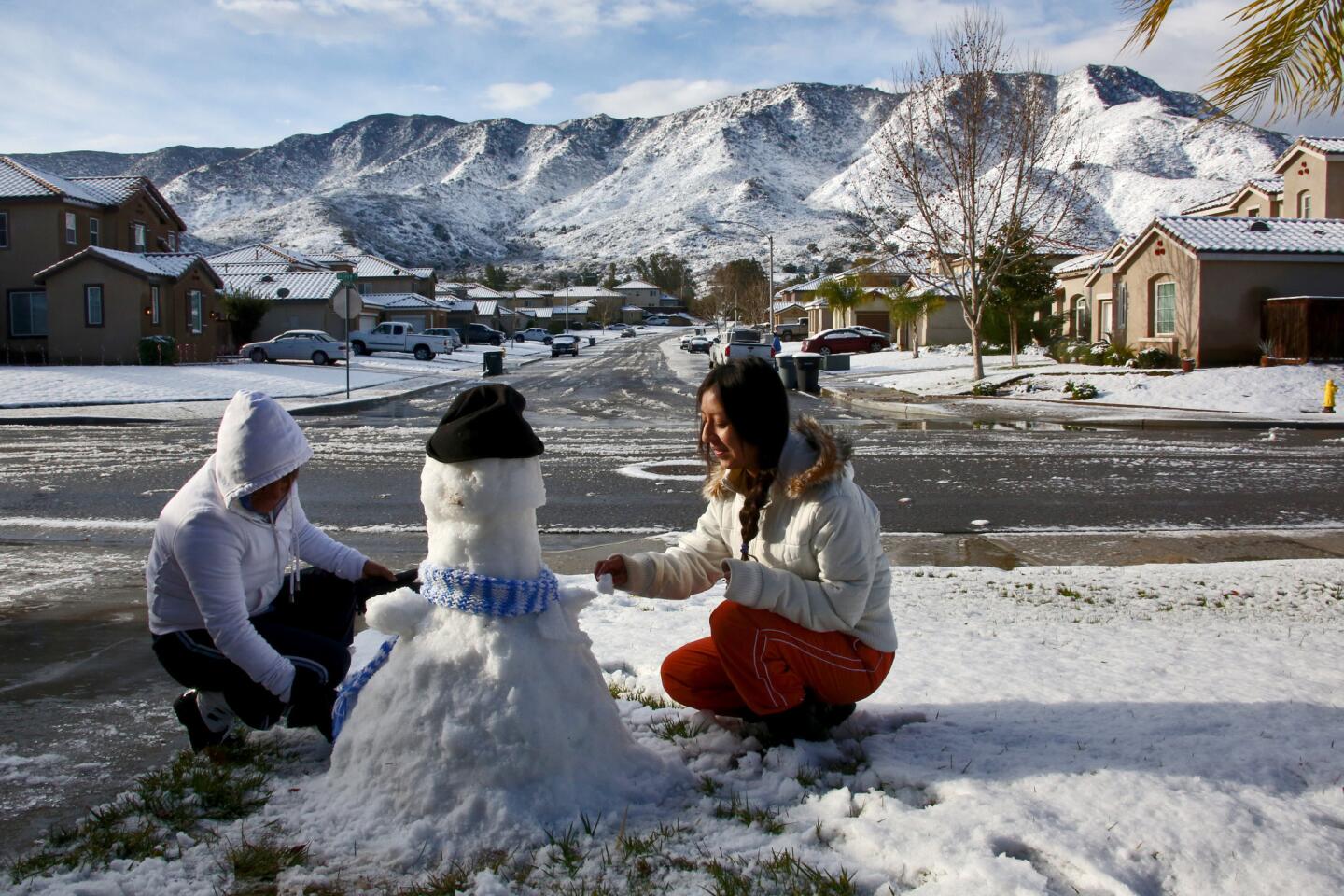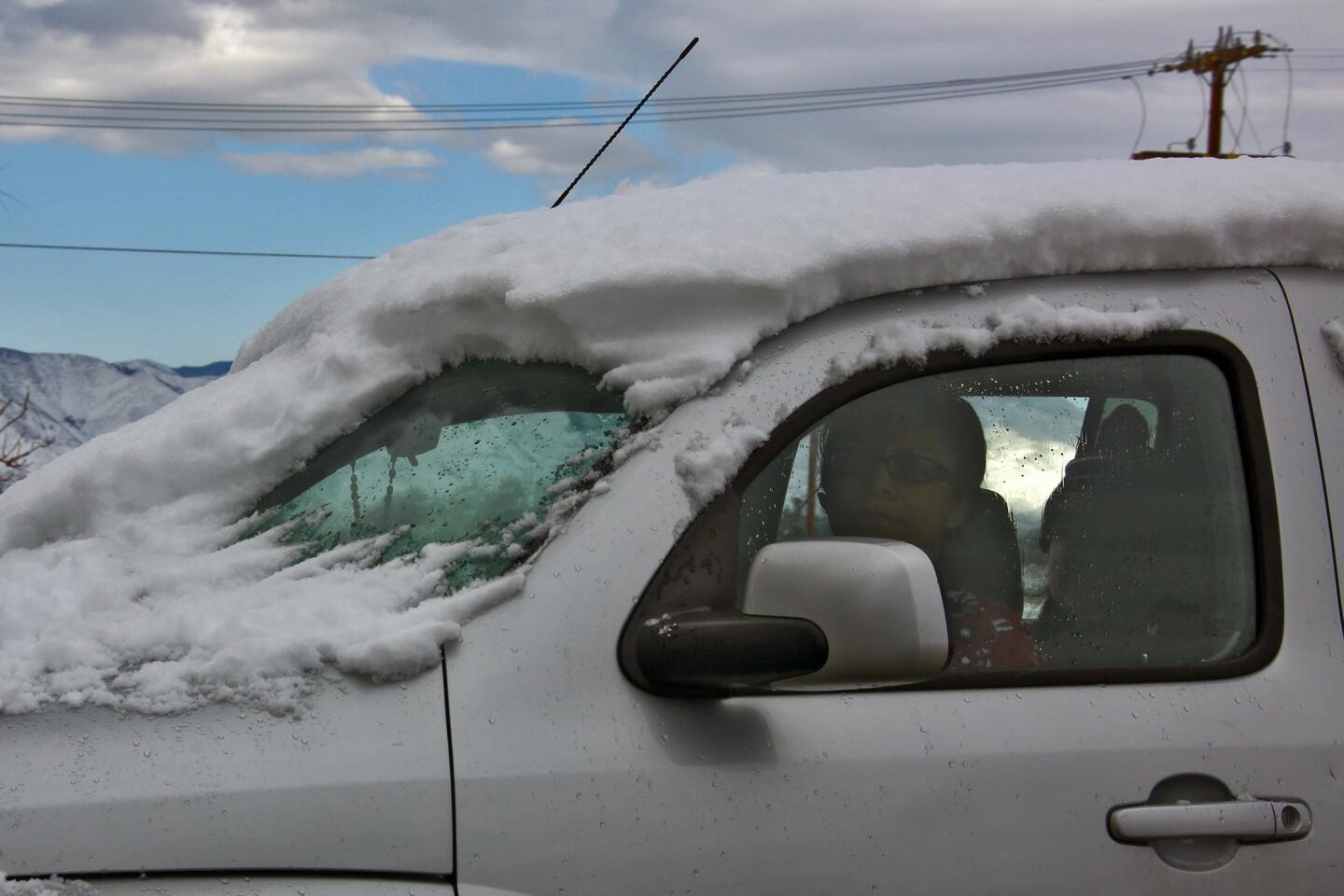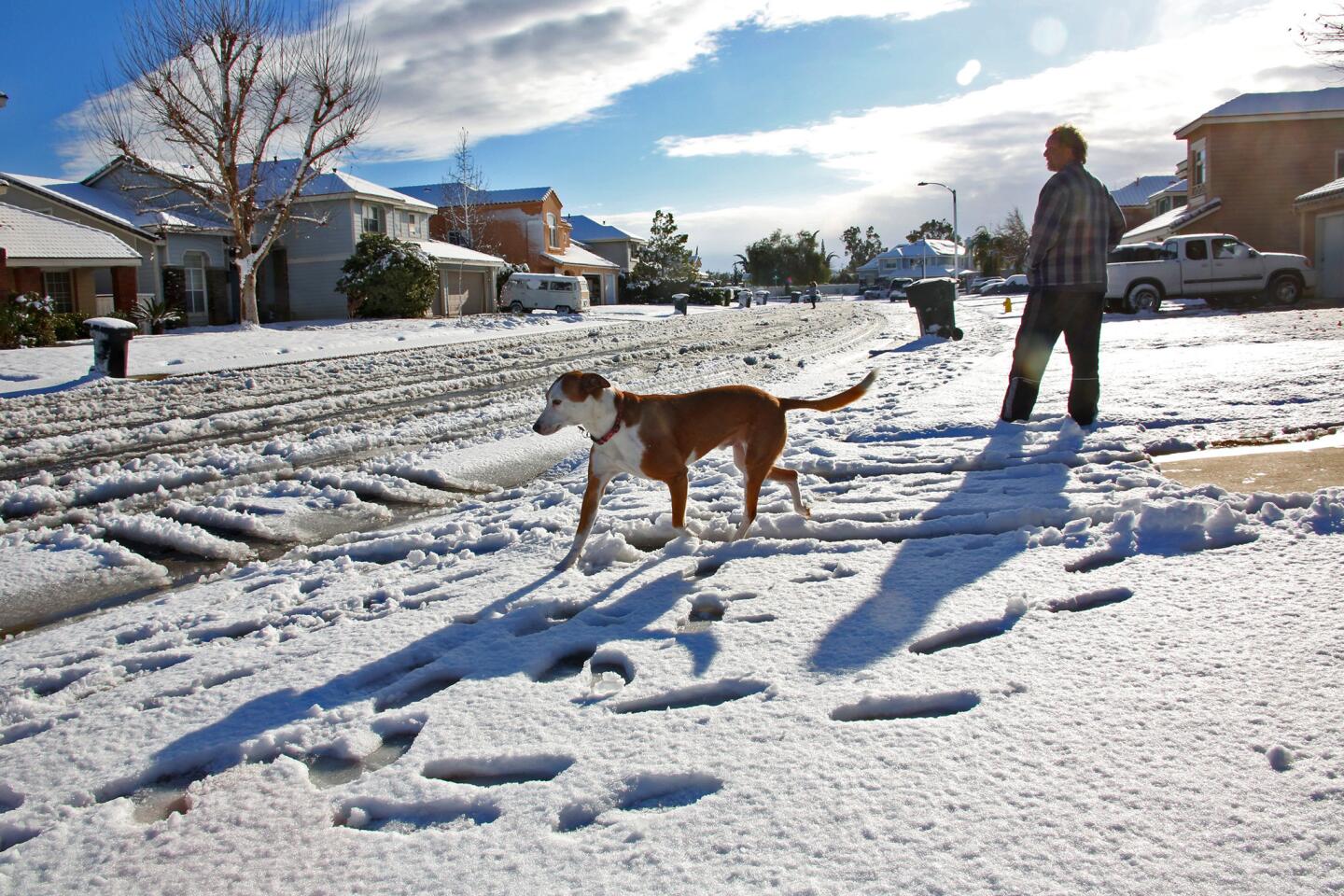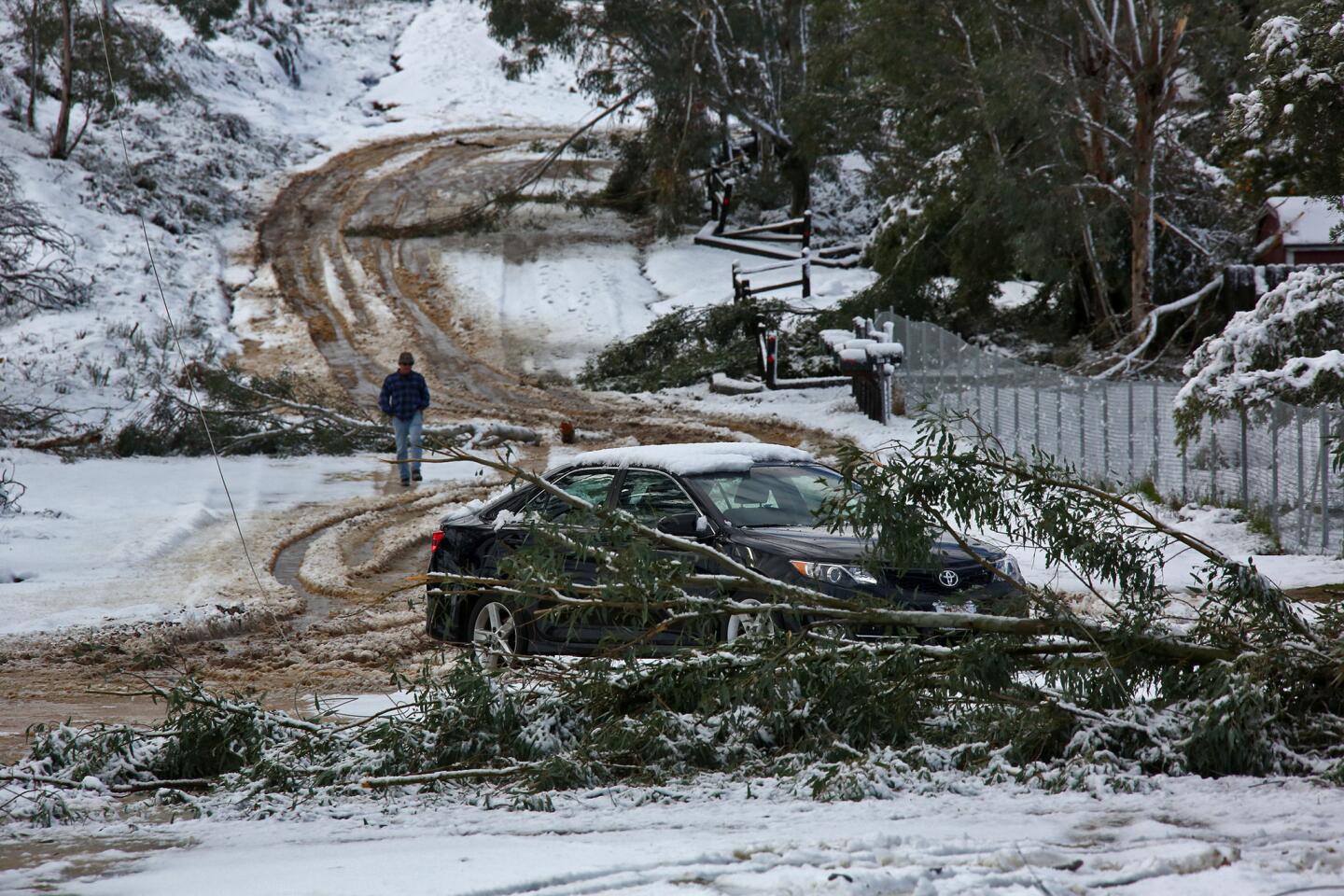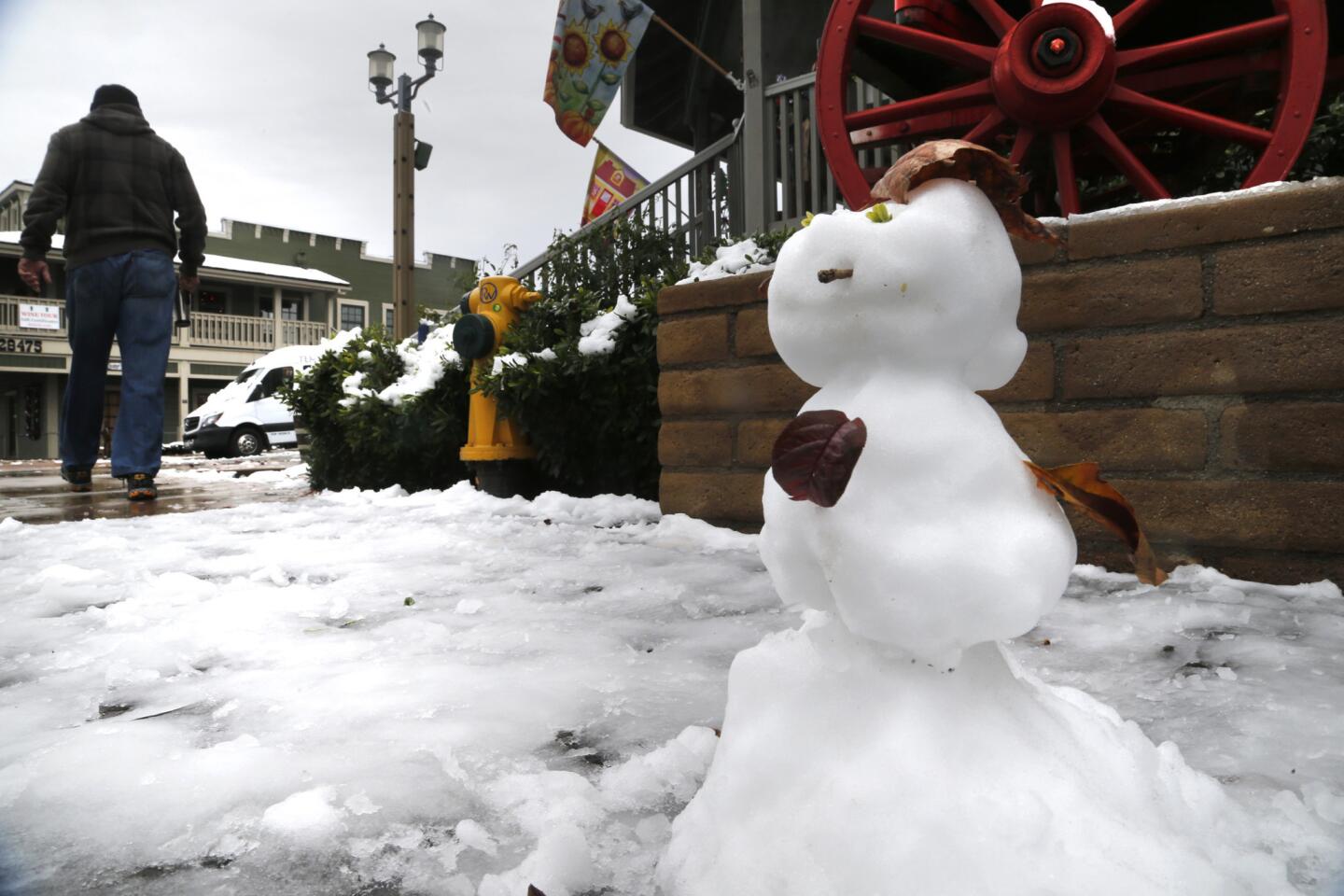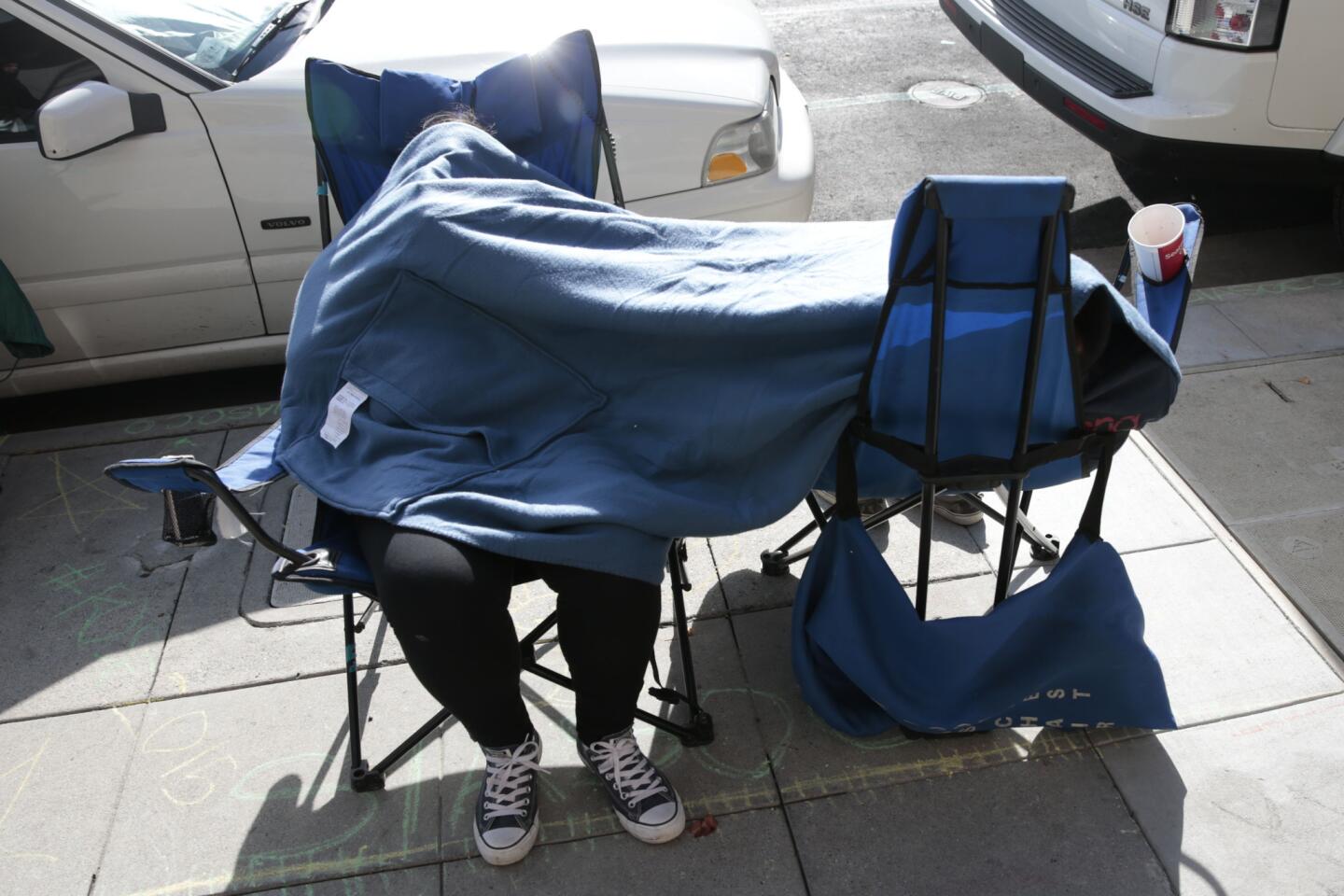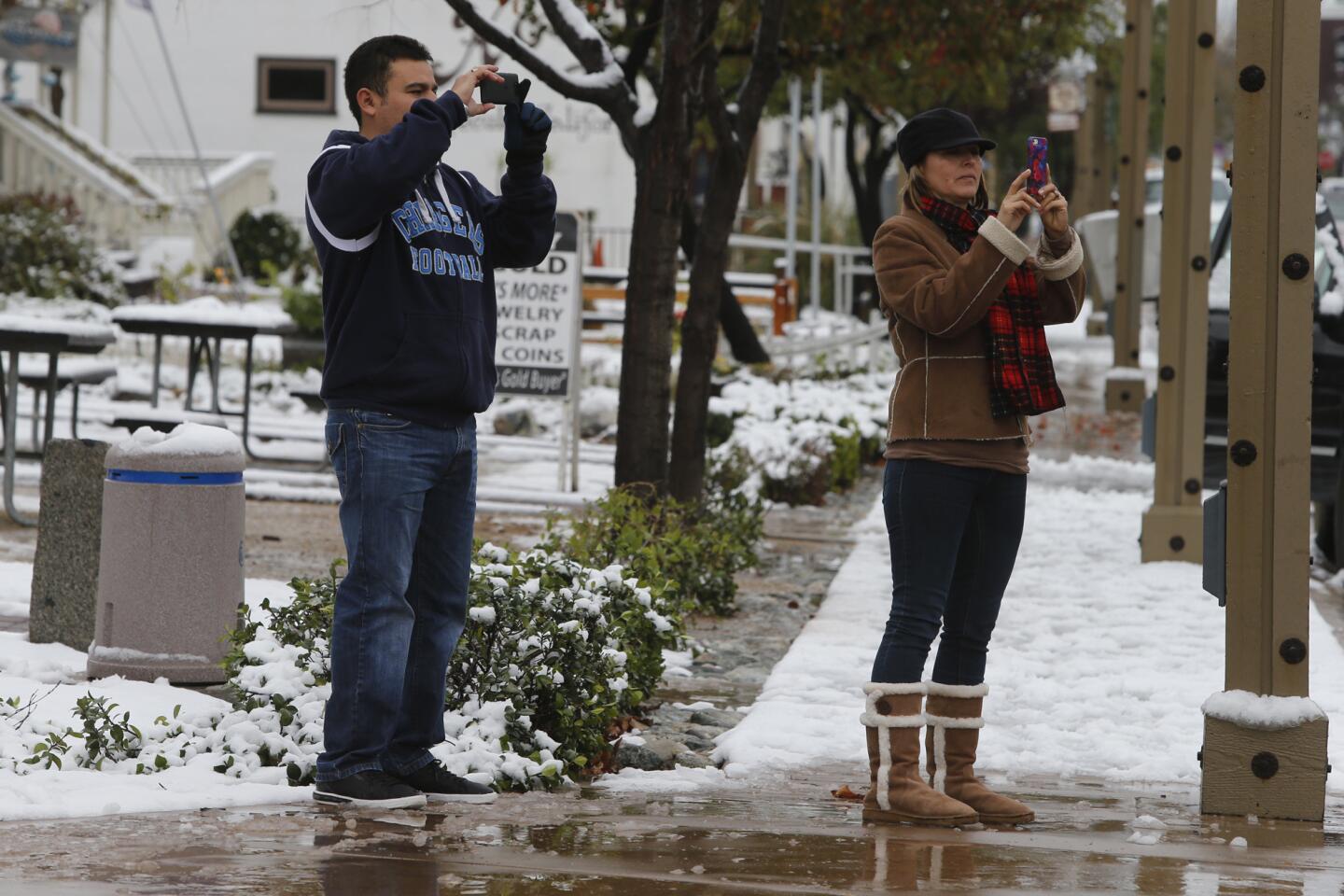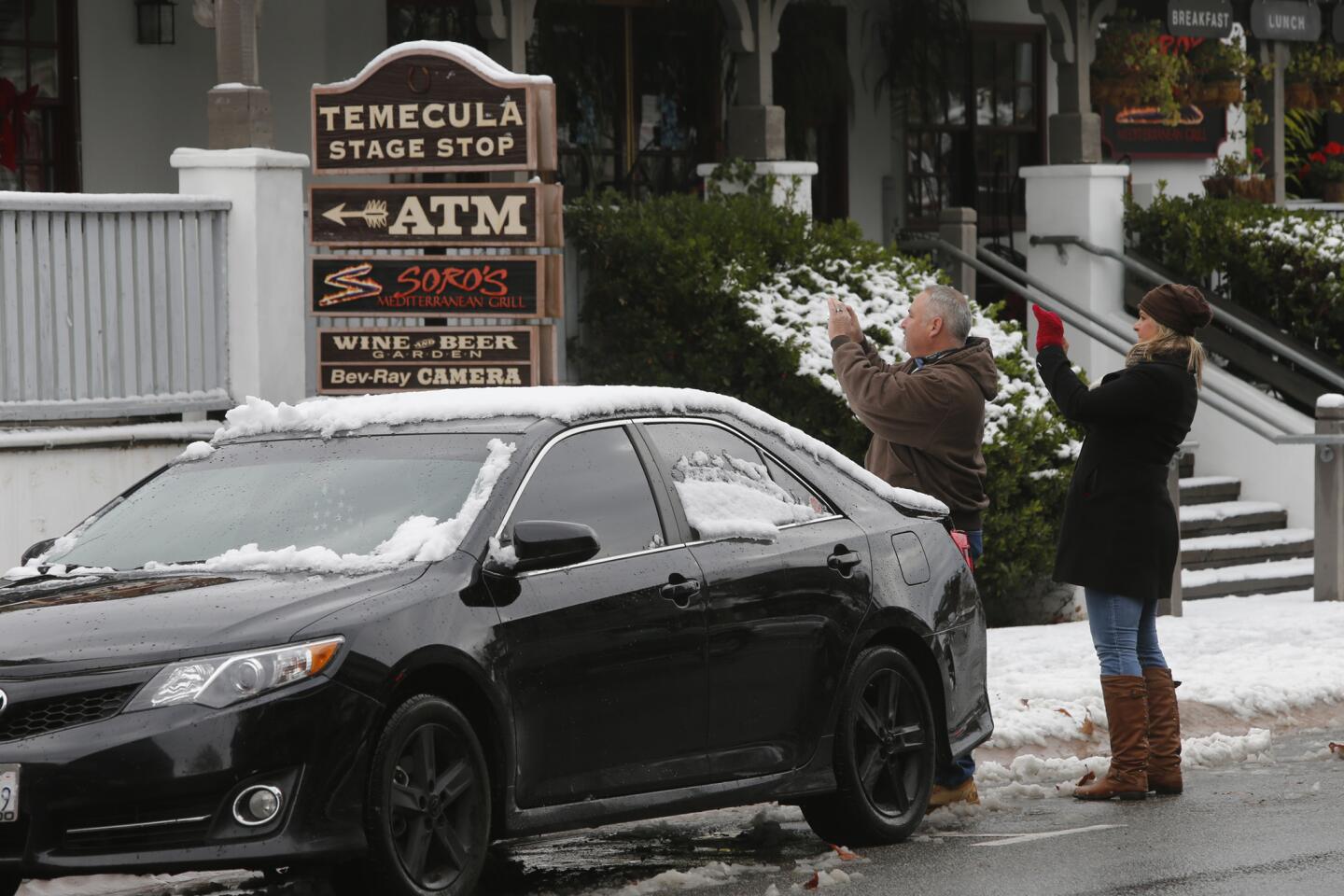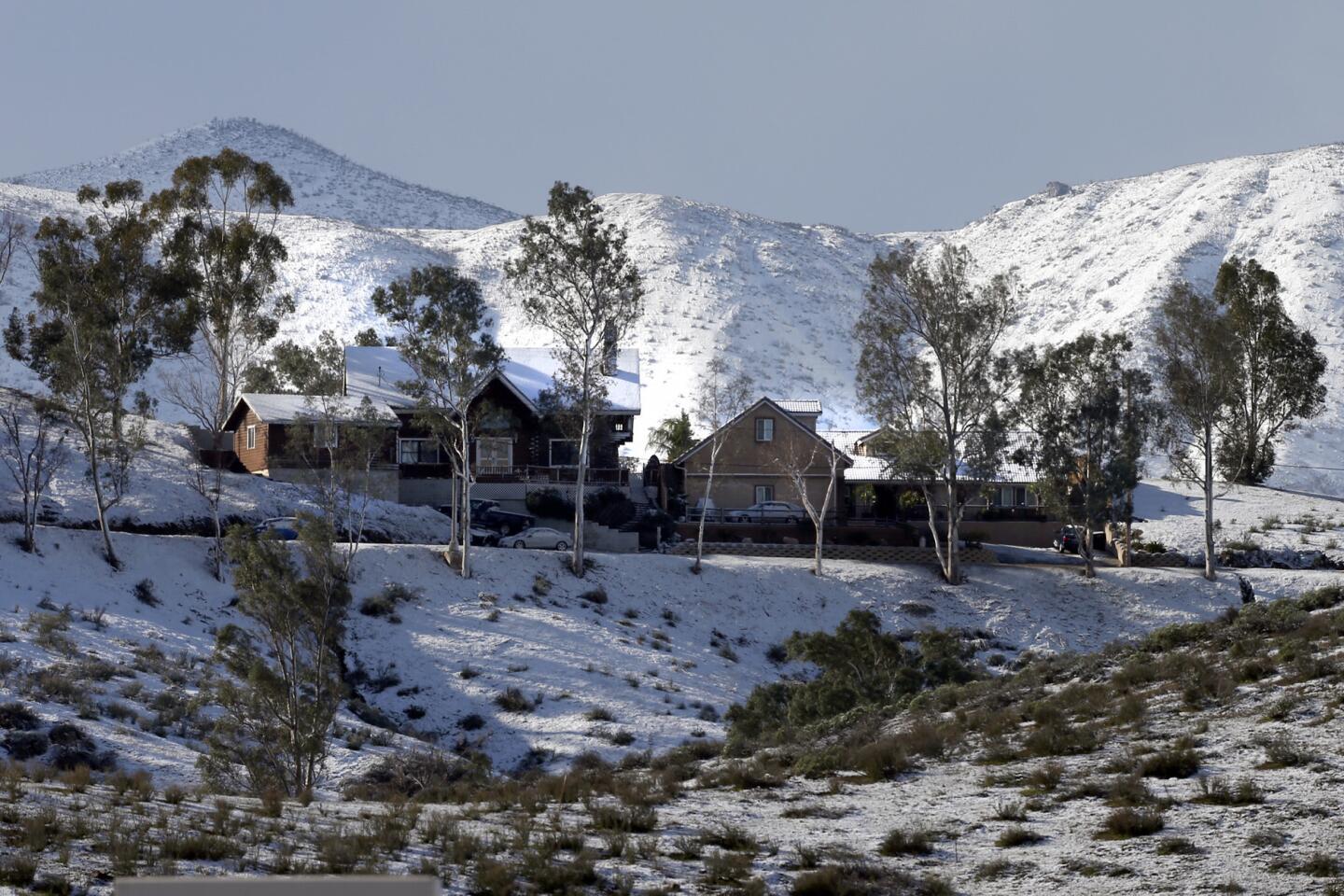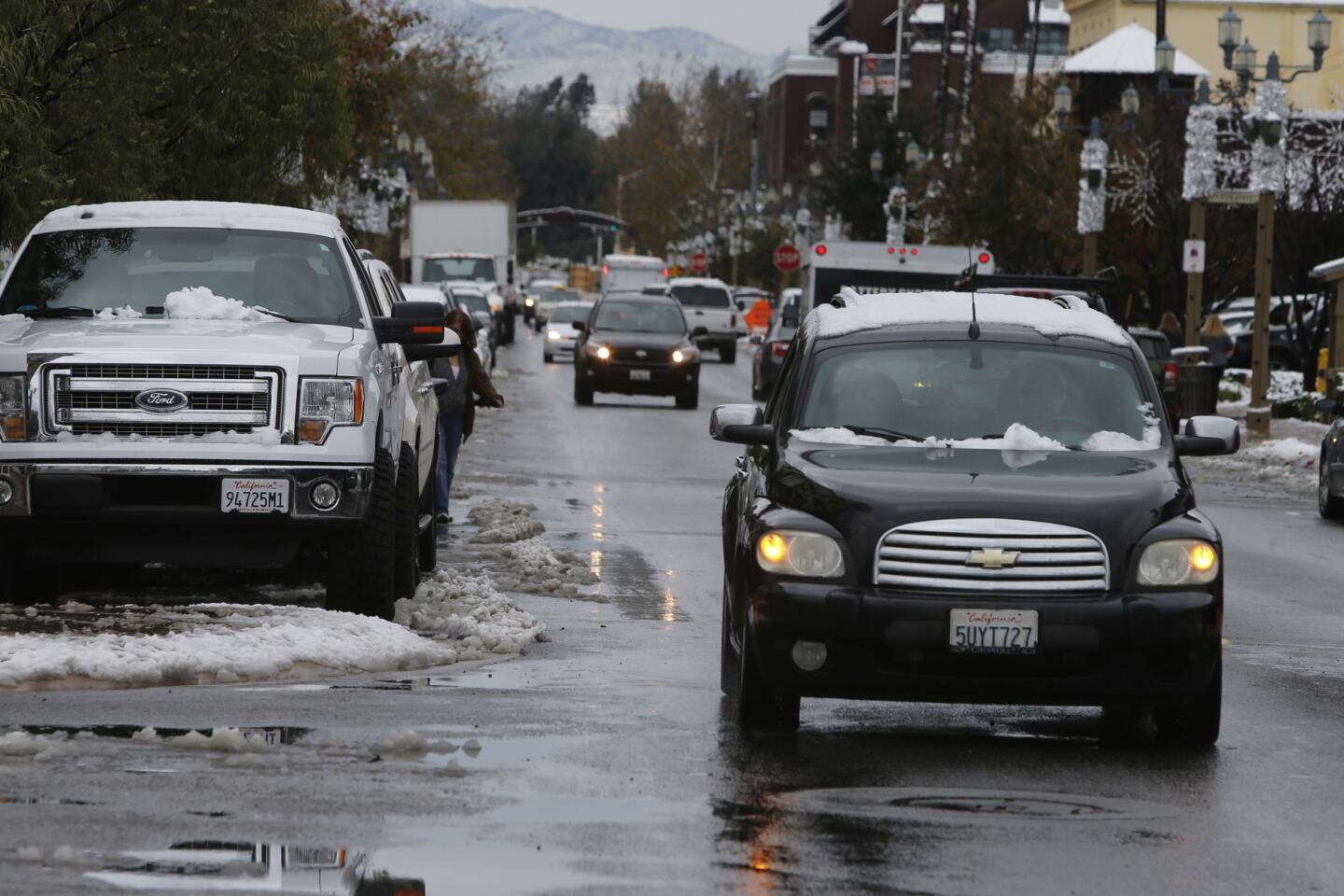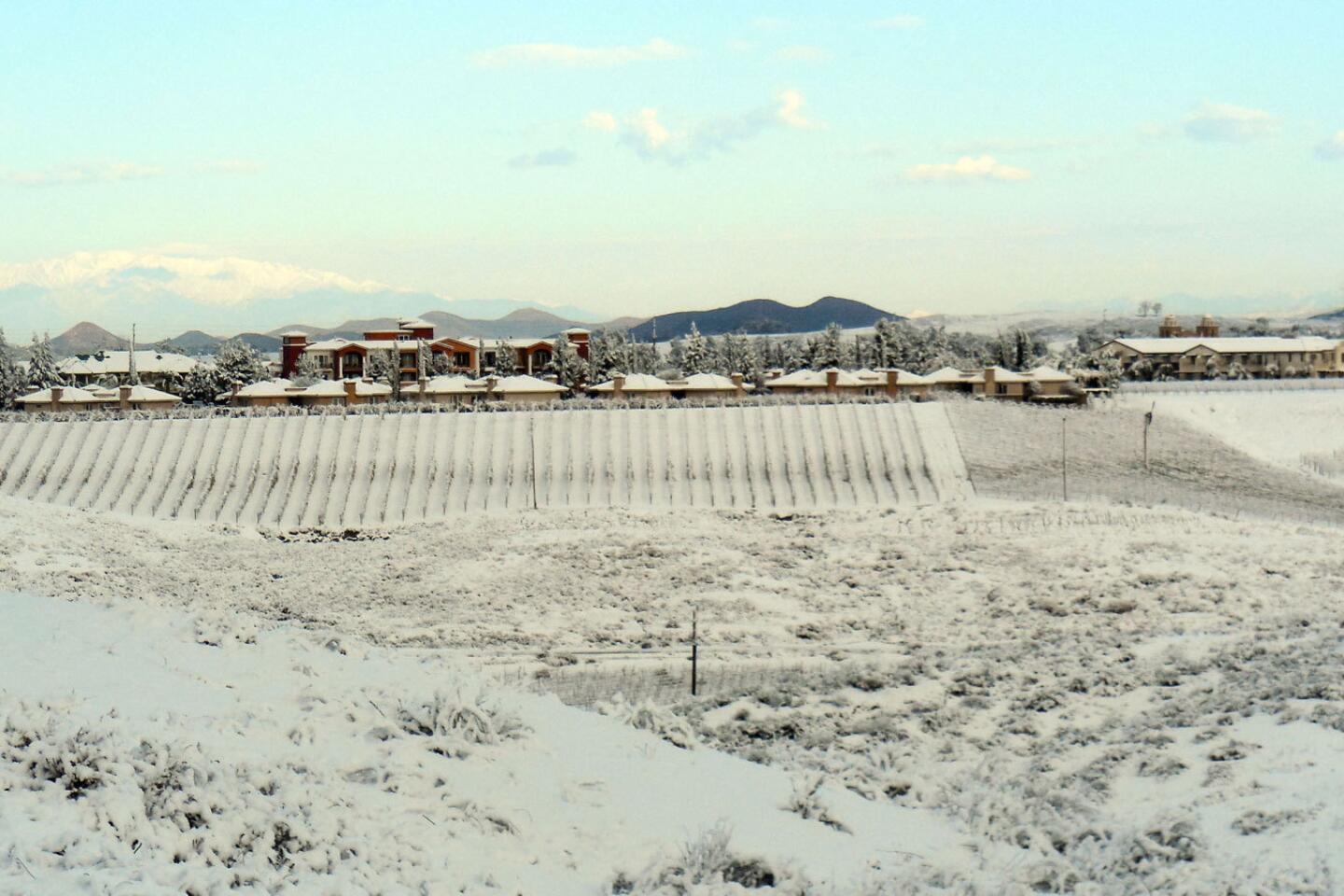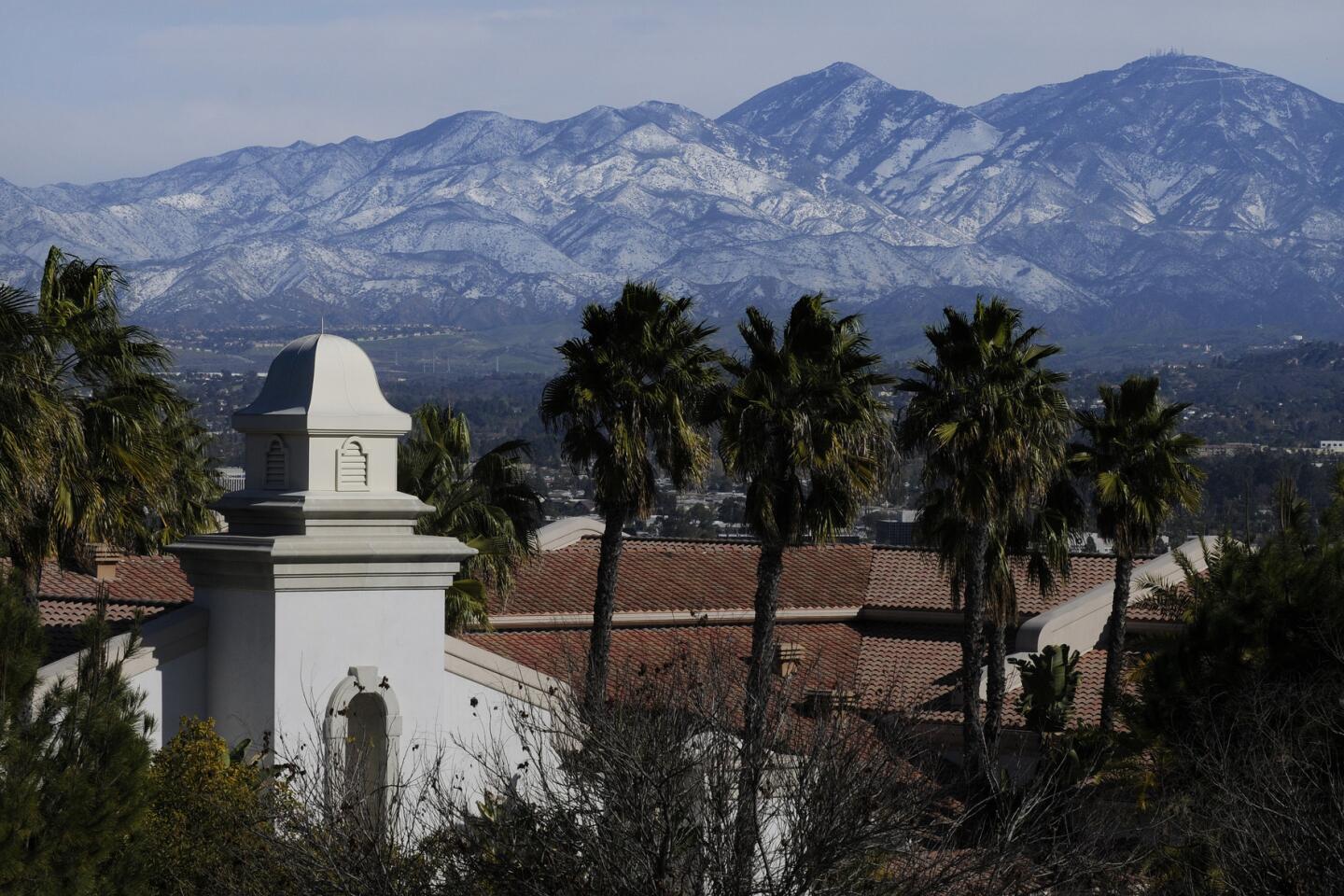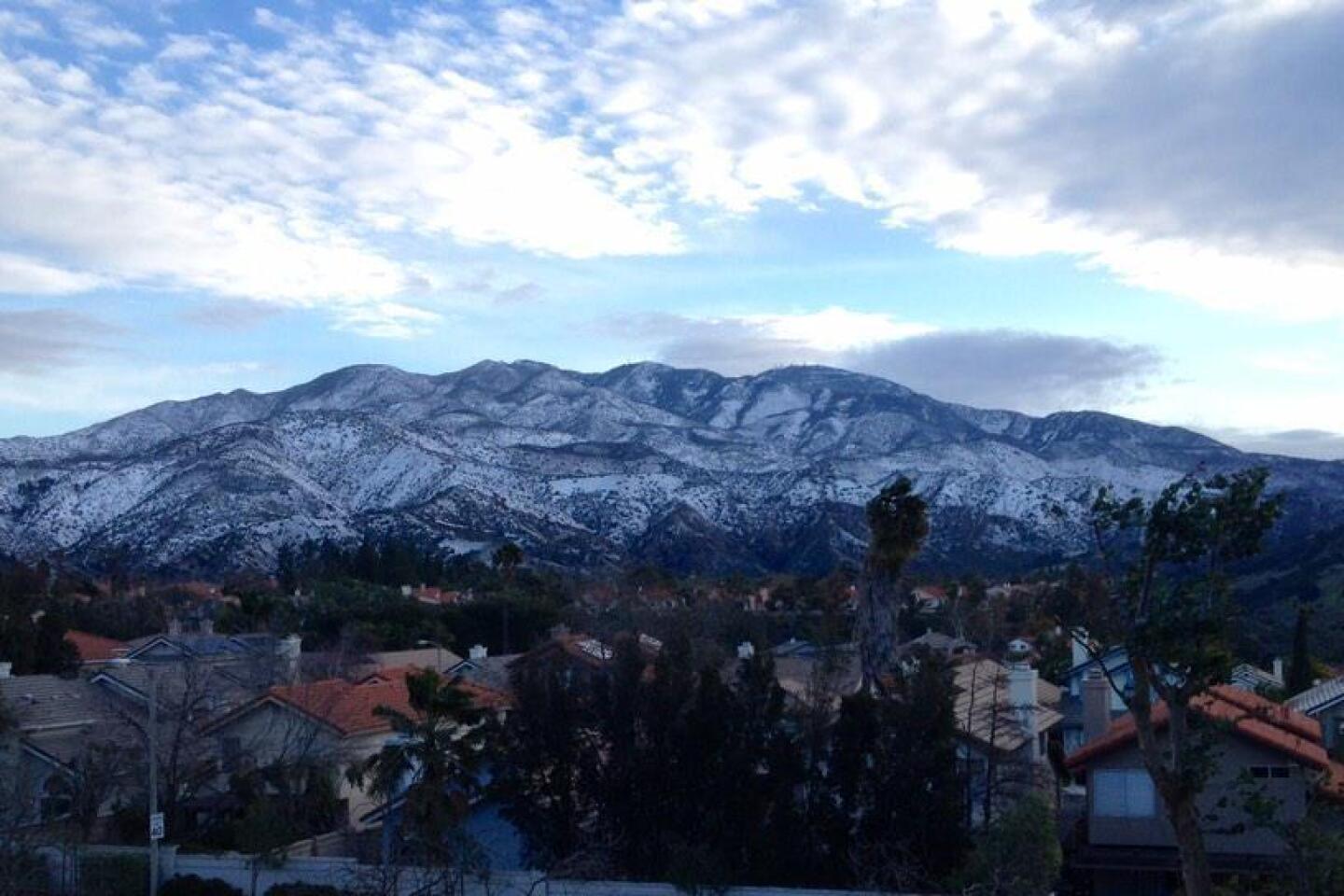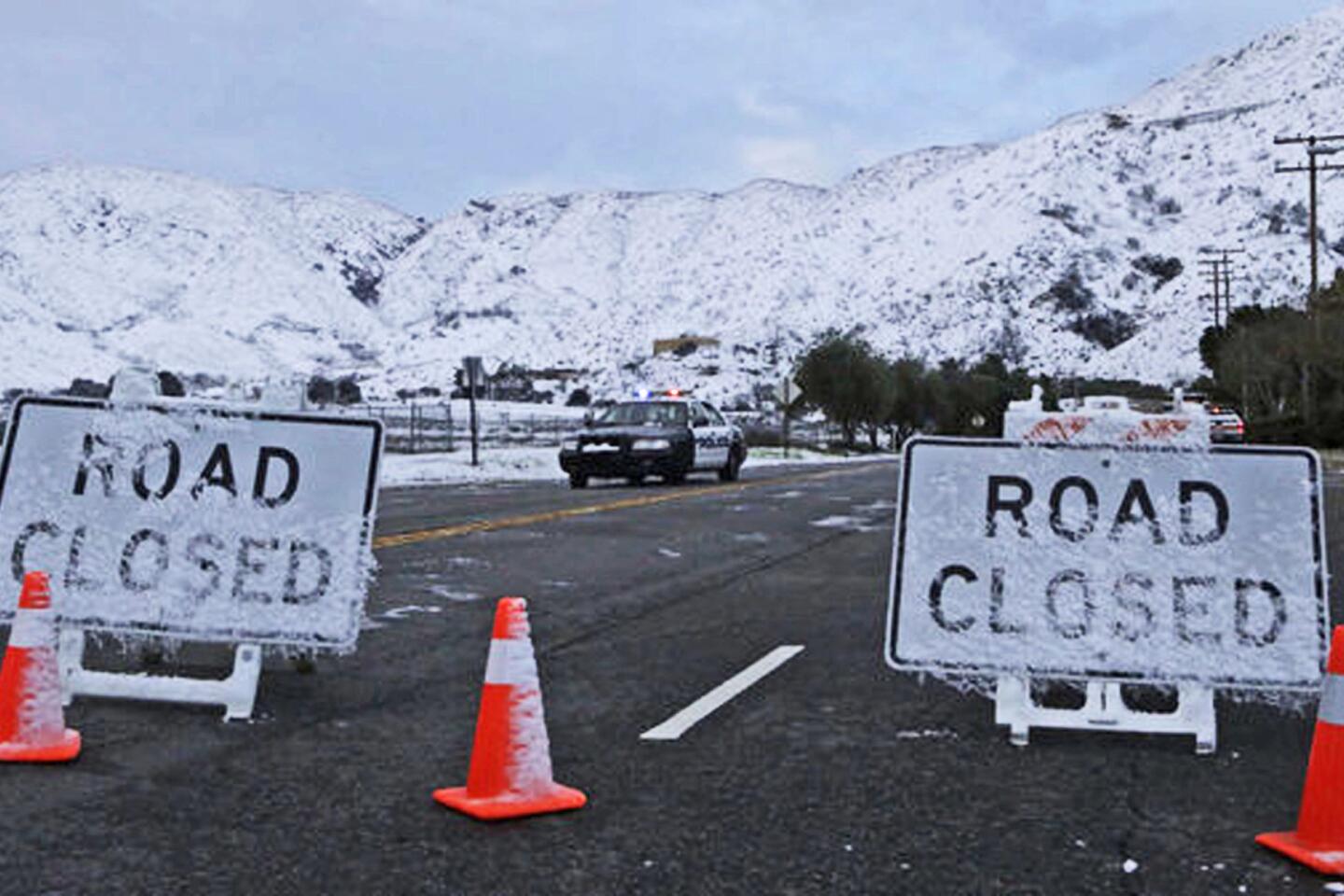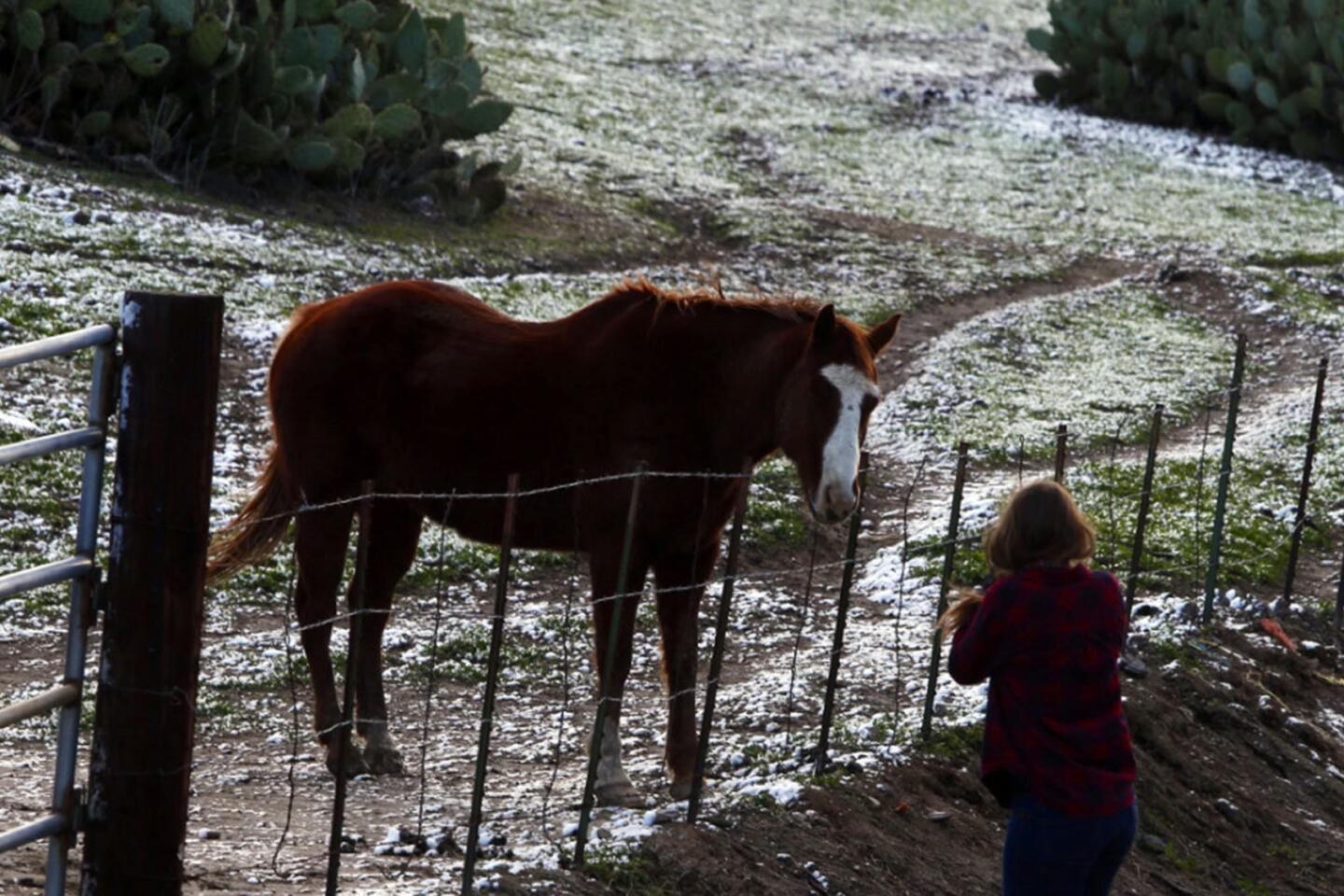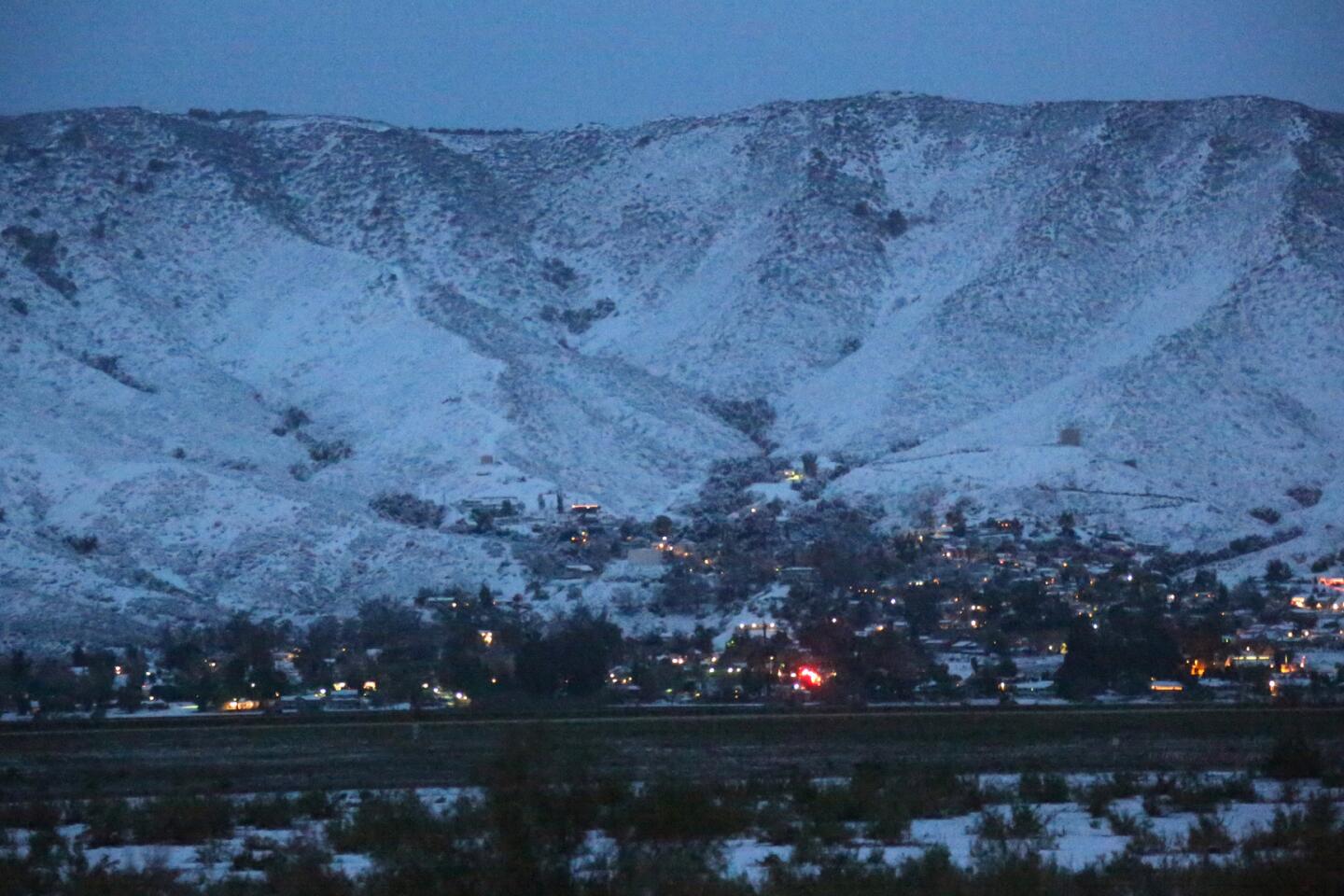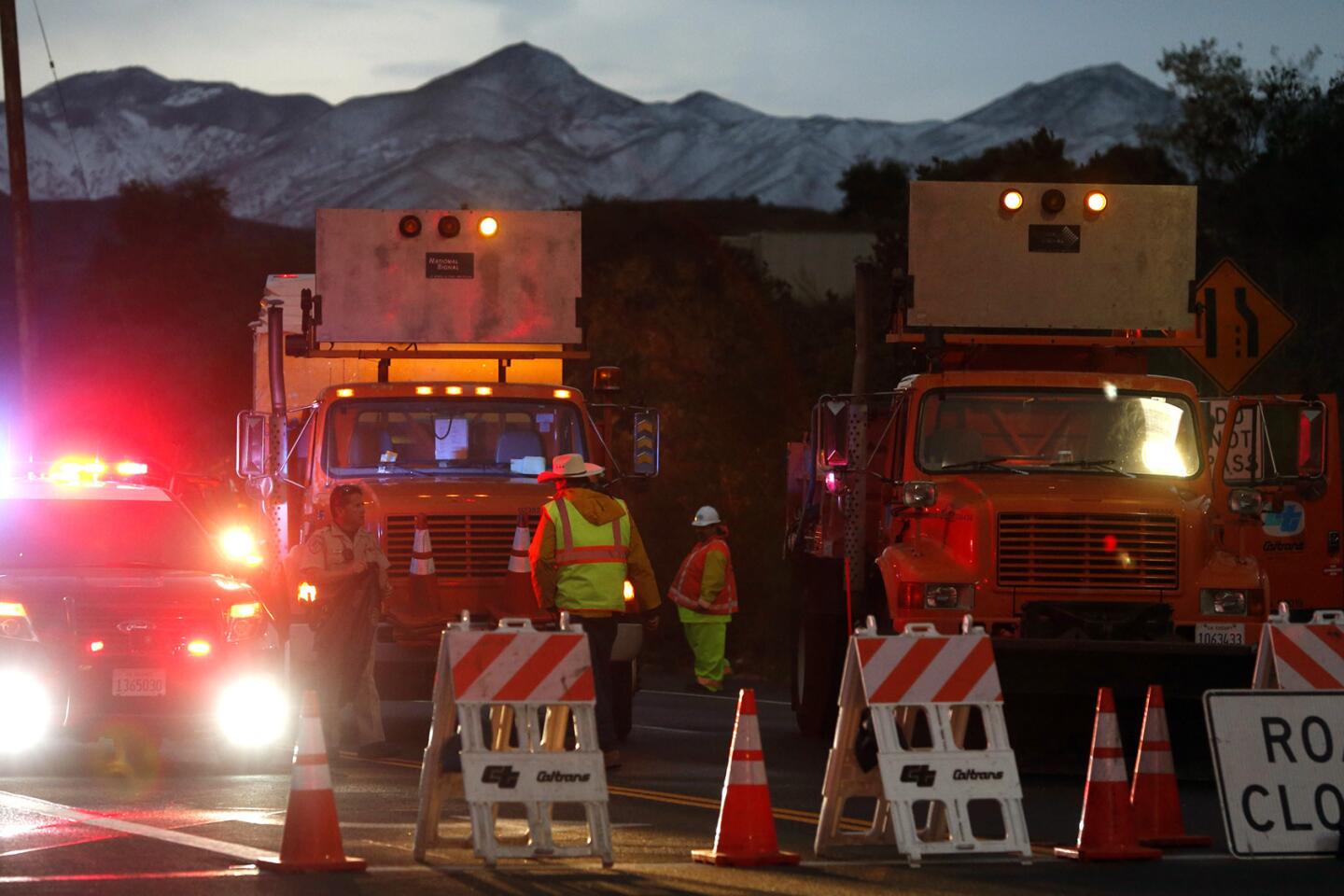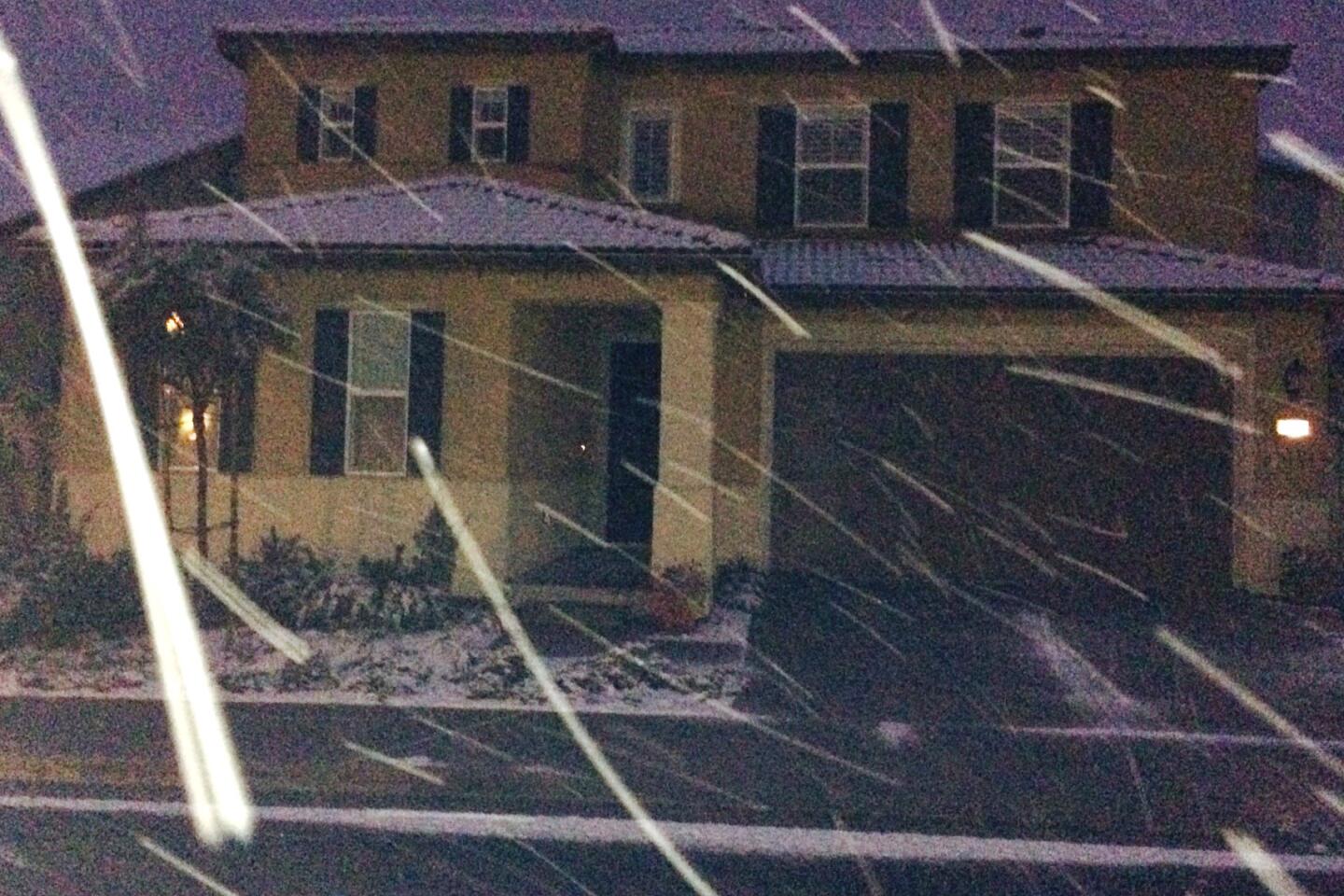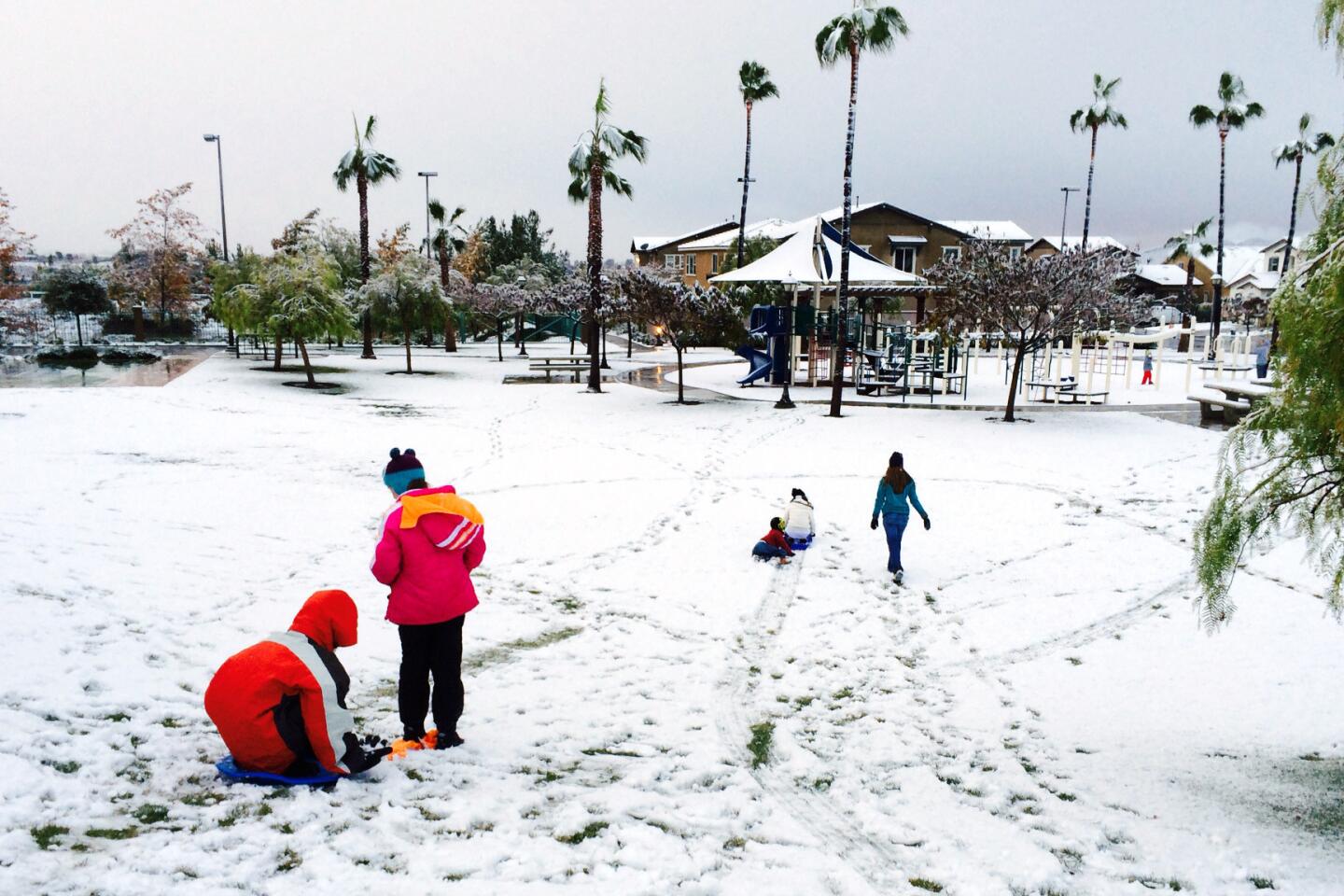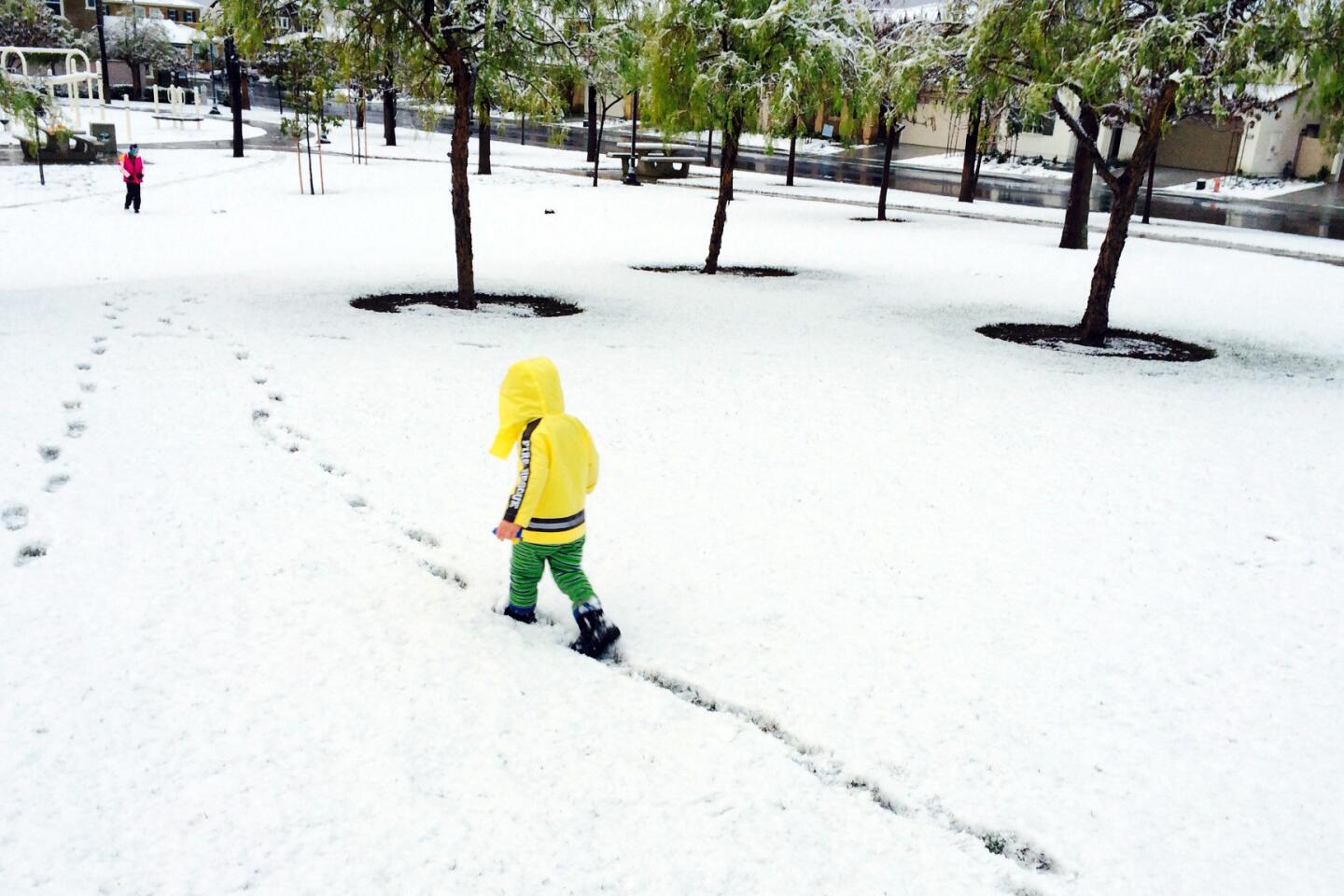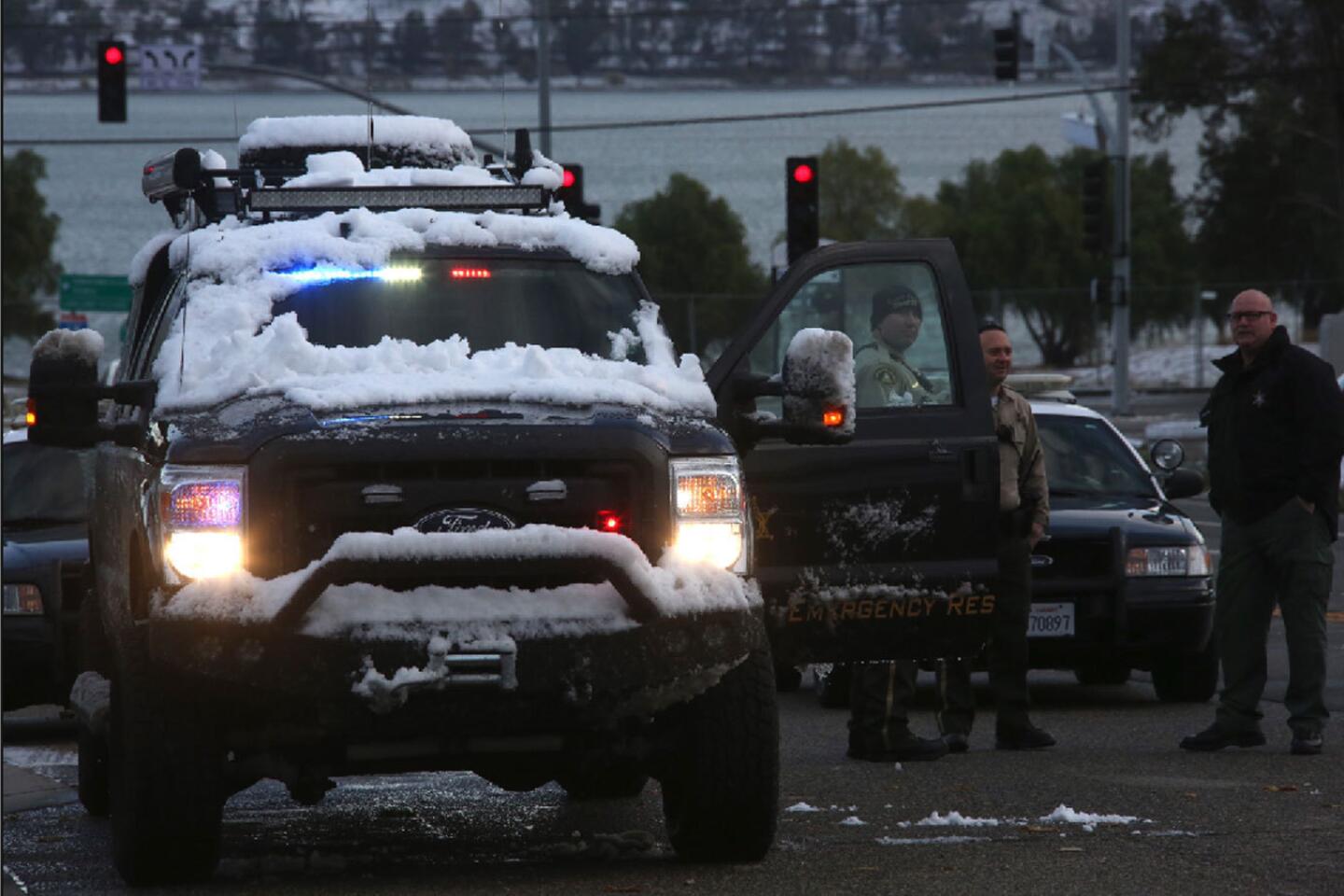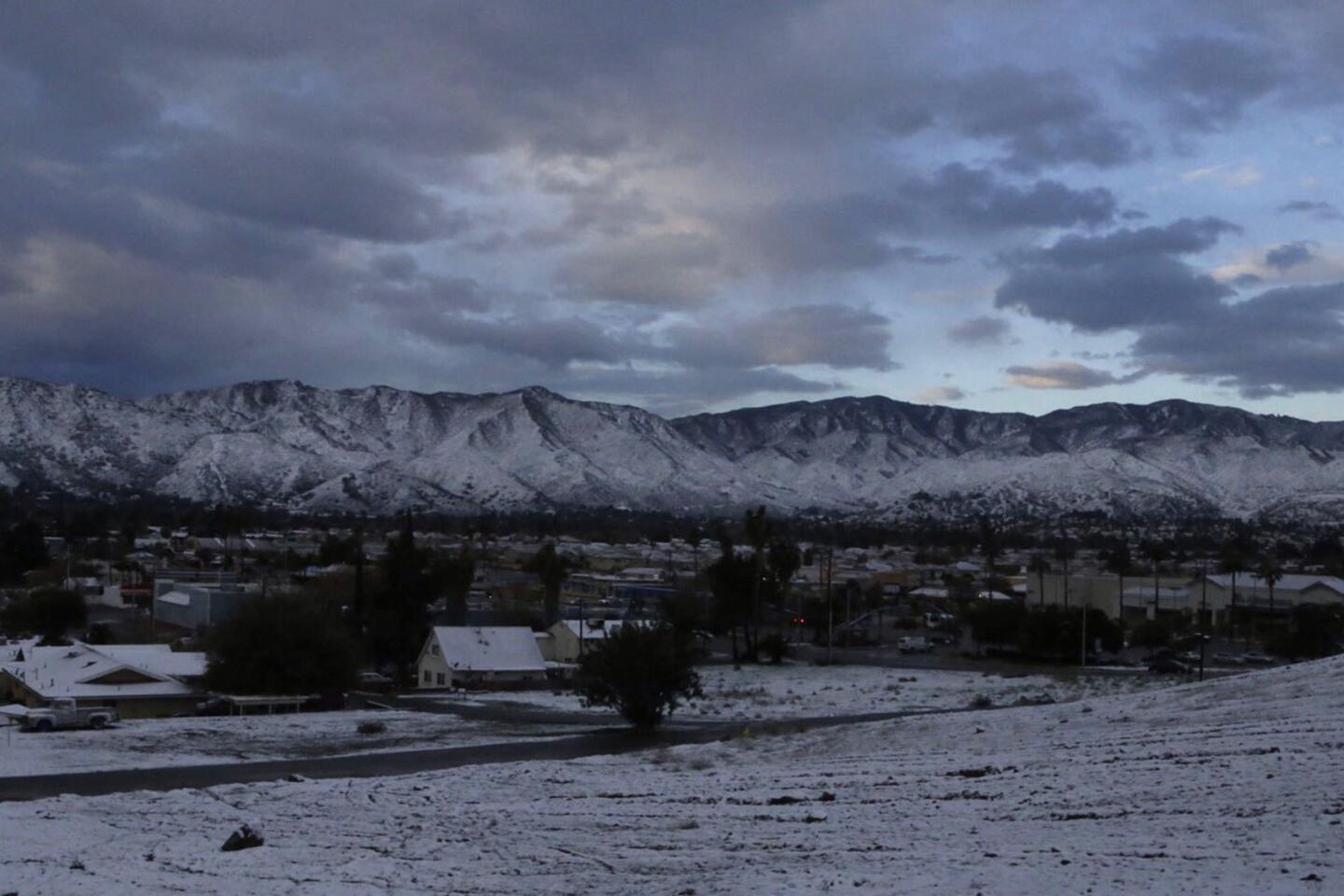Winter storm socks Southland with icy punch
- Share via
An extreme cold front descended on Southern California in time for the New Year, bringing freezing temperatures and unusually low snow levels as well as powerful winds that left two people dead on Catalina Island, where boats in Avalon Harbor were pushed ashore.
The cold will continue Thursday, as thousands line the streets of Pasadena for the Rose Parade. Weather experts said it could be the coldest on record, beating the 32-degree reading set in 1952.
The front brought heavy snow to mountain areas, stranding drivers on several roads. It also left snow in foothill areas below 2,000 feet, creating some picture-postcard views.
One Harbor Patrol officer was crushed between a loosed boat and rocks in Avalon Harbor, and Los Angeles County sheriff’s deputies later recovered the body of another man found floating in the water. There were reports that another person might be missing from the island.
The Harbor Patrol officer was working to secure the loose boats late Tuesday when the vessel he was on came close to hitting rocks, according to authorities. He tried to jump to safety but became trapped in rough seas. Two deputies tried to pull him from the water, but they couldn’t reach him. Divers recovered his body early Wednesday. Coroner’s officials will determine the cause of both deaths.
Meanwhile, a freak wind caused minor injuries to four people as it ripped through booths at the Rose Bowl. The sudden tornado-like gust — referred to by weather officials as akin to a cold dust devil — seemed to move in a straight line, overturning tables, sending debris skyward and causing onlookers, including one person in a cow costume, to scream and run for safety.
“It was an erratic wind event that even the weather service wasn’t anticipating,” said Pasadena Fire Department spokeswoman Lisa Derderian.
Revelers attending the Rose Parade in Pasadena on Thursday are expected to be met with record early morning temperatures of 29 to 32 degrees. Officials said the freezing temperatures could harm the delicate blooms affixed to floats.
The cold snap should persist through Friday, when offshore winds will start to push temperatures higher, said Stuart Seto, a weather specialist for the National Weather Service in Oxnard.
Three deaths in Northern California were attributed to the storm. A Redding woman died when a 30- to 40-foot pine tree fell onto her home. A man and a 3-year-old girl also were injured in the accident, which the Redding Fire Department said occurred about 2:30 a.m. Wednesday.
In Santa Cruz, wind toppled a 4-foot-wide tree, blocking a two-lane highway.
And in the Inland Empire during Wednesday’s morning rush-hour commute, at least six big rigs toppled onto their sides, snarling traffic for miles.
“It’s pretty bad,” said California Highway Patrol Officer Marcelo Llerena. “Wind advisories have been in effect … and people are still driving and this is what happens.”
Dozens of vehicles without snow chains or four-wheel drive were stuck on the Ortega Highway in Riverside, with some people abandoning their cars after icy road conditions made it difficult to drive.
Helicopter crews spotted about 35 to 40 cars, said CHP Officer Denise Quesada.
About 50 people took shelter at the First Baptist Church in Crestline early Wednesday after more than 136 motorists in dozens of vehicles were stranded on the steep, snowy switchbacks on California 138, triggering multiple rescue efforts by fire crews from the High Desert, Crest Forest and Lake Arrowhead departments. Up to 200 vehicles in Big Bear were towed after they became mired in snow, the CHP reported.
In El Cariso Village above Lake Elsinore, 10 inches of snow broke tree branches and knocked down power lines.
California’s lucrative citrus crop has so far escaped damage, but growers were likely to employ heat and wind machines and other protective measures as temperatures were forecast to drop into the low and mid-20s in Fresno, Tulare and Kern counties Wednesday and Thursday nights, said Bob Blakely, vice president of the California Citrus Mutual.
The storm dropped snow levels to 1,400 feet and produced unusual sights: hastily built snowmen sprouted in Temecula neighborhoods, snow dusted L.A.’s iconic palms and ice floated in backyard pools.
In Old Town Temecula, a recording of “Let It Snow” blared from speakers in front of quaint shops. Visitor Jamila Miloud paused from shopping to take pictures with family members, marveling at the snowy scene.
“It looks beautiful,” said Miloud, 50, pointing to a cactus near her feet. “It’s ironic. Cactus with snow.”
In between calls to respond to downed power lines and freeway accidents, Murrieta Fire Department engineer Shad Chanley and some colleagues took time to build a snowman wearing a fire hat, fire gloves and with a fire hose slung over one shoulder. It was completed with a jalapeno nose and eyes made of charcoal from the barbecue. People stopped by to photograph the creation.
“Why not?” Chanley said. “We probably won’t ever get to do it again here in front of the station in Murrieta.”
Rare snow in the community of Wildomar in Riverside County brought children outside for snowball fights and sledding.
The snow was a first for Robertino Fieraru, who said he had lived in Wildomar for six years and Southern California for 30.
“It’s unbelievable,” said Fieraru, 40. “At about 1 a.m., I saw somebody in the middle of the street making a snow angel.”
Fieraru said branches were down around his home, and a neighbor’s tree “split in half.” But he said no cars or homes were damaged.
“We built a huge snowman,” Fieraru said. “It’s bigger than my kid.”
At Big Bear Mountain, the single-digit temperatures and dry conditions brought the type of light, fluffy snow that falls in Utah and Colorado, resort officials said.
“We don’t see cold, dry snow in sunny Southern California,” said Chris Riddle, vice president of marketing at Big Bear Ski Resort.
The storm dumped about 8 inches of snow on the area, bringing packed, powdered conditions typical for the middle of winter. Riddle said it’s the best ski conditions the resort has experienced in two years.
Temperatures in the Los Angeles Basin are about 10 degrees below the average low of about 47 degrees for this time of the year, said Seto, of the weather service. Daytime highs are running 5 or 6 degrees below the normal of about 66, he said.
By Sunday, Los Angeles should return to its more familiar winter temperatures of about 72 degrees.
Times staff writers Angel Jennings and Amy Hubbard contributed to this report.
More to Read
Sign up for Essential California
The most important California stories and recommendations in your inbox every morning.
You may occasionally receive promotional content from the Los Angeles Times.
